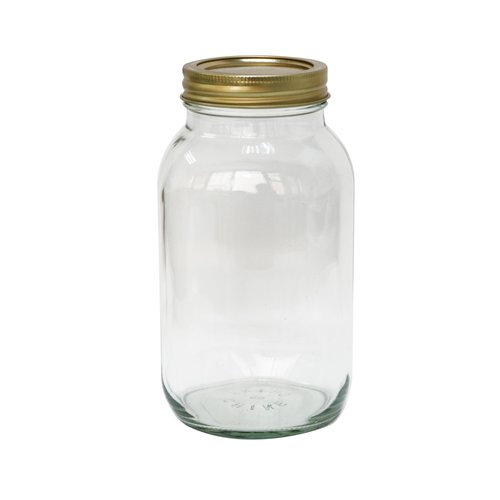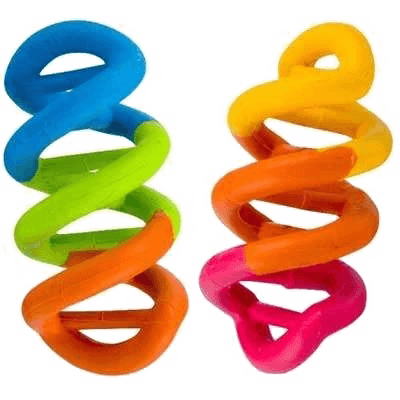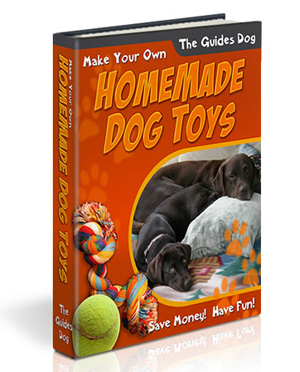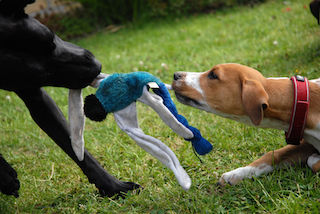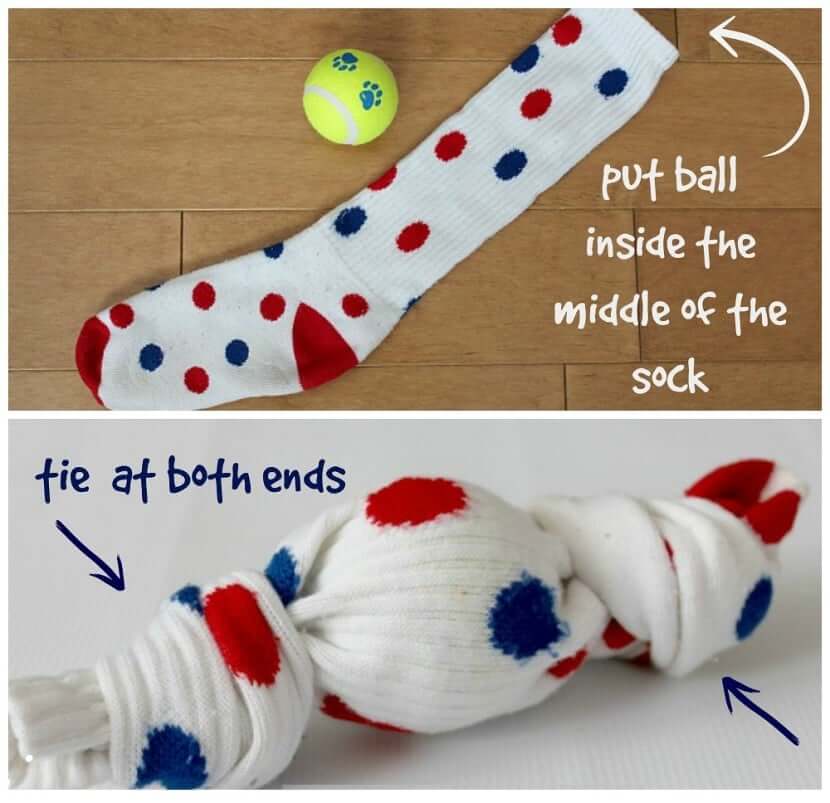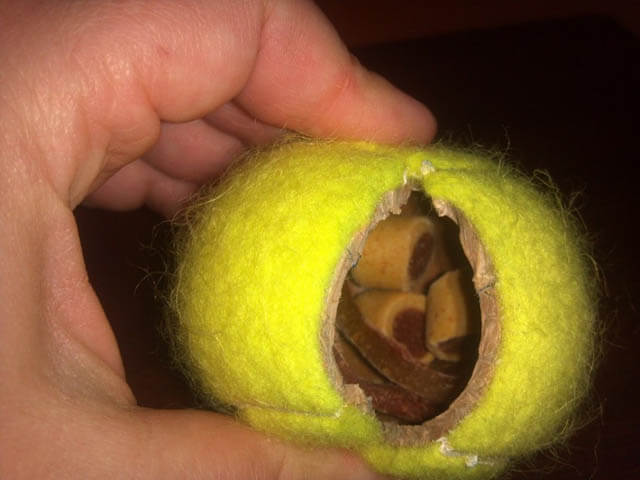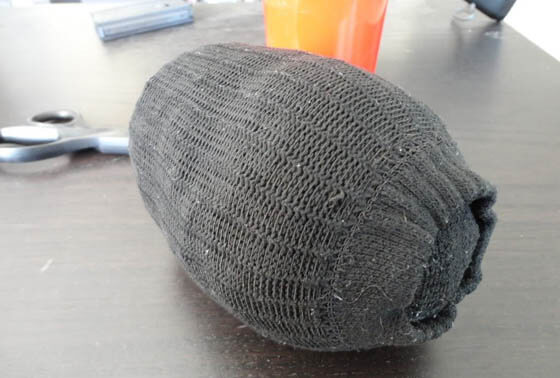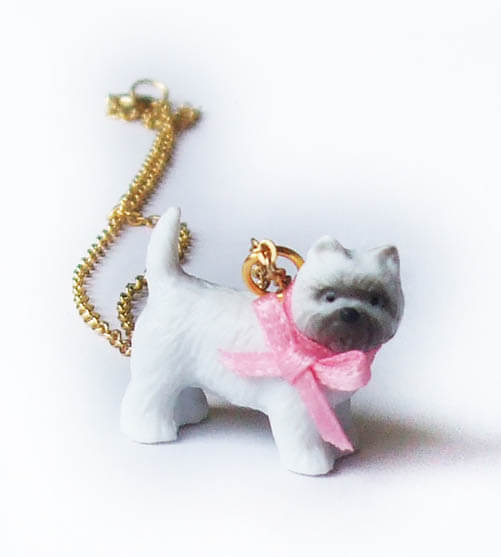

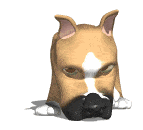

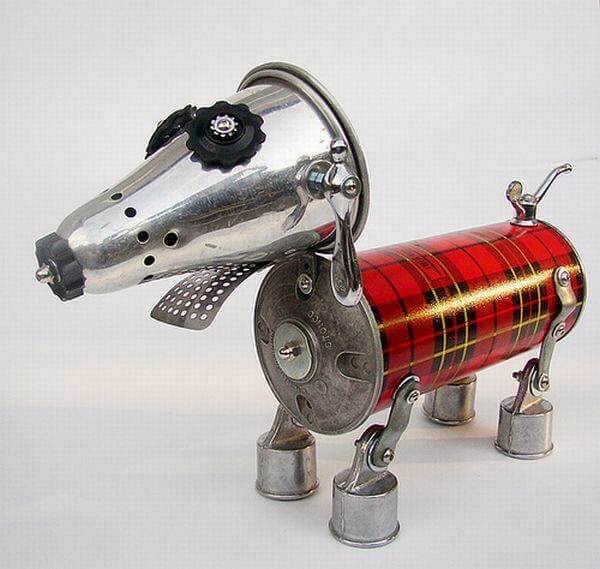
Homemade Dog Tail Protector ! |
| Phone numbers and your pet's medical record, including medications and vaccination history Veterinarian: Emergency veterinary clinic: Animal Poison Control Center: 888-4ANI-HELP (888-426-4435) (there may be a fee for this call, | Know these numbers before you need them. If you do not know the number of the emergency clinic in your area, ask your veterinarian or go to the Veterinary Emergency and Critical Care Society Web site for a searchable list of emergency clinics by state, enter the zip code, and check the "emergency" box to get a listing of emergency providers in the area. |
| Gauze | For wrapping wounds or muzzling the injured animal |
| Nonstick bandages, towels, or strips of clean cloth | To control bleeding or protect wounds |
| Adhesive tape for bandages *do NOT use human adhesive bandages (eg, Band-Aids) on pets | For securing the gauze wrap or bandage |
| Milk of magnesia Activated charcoal | To absorb poison Always contact your veterinarian or local poison control center before inducing vomiting or treating an animal for poison |
| Hydrogen peroxide (3%) | To induce vomiting Always contact your veterinarian or local poison control center before inducing vomiting or treating an animal for poison |
| Digital Thermometer you will need a "fever" thermometer because the temperature scale of regular thermometers doesn't go high enough for pets | To check your pet's temperature. Do not insert a thermometer in your pet's mouth the temperature must be taken rectally. |
| Eye dropper or large syringe without needle | To give oral treatments or flush wounds |
| Muzzle (in an emergency a rope, necktie, soft cloth, nylon stocking, small towel may be used) | To cover your pet's head. If your pet is vomiting, do not muzzle it! |
| Leash | To transport your pet - if your pet is capable of walking without further injury |
| Stretcher - in an emergency a door, board, blanket or floor mat may be used | To stabilize the injured animal and prevent further injury during transport |
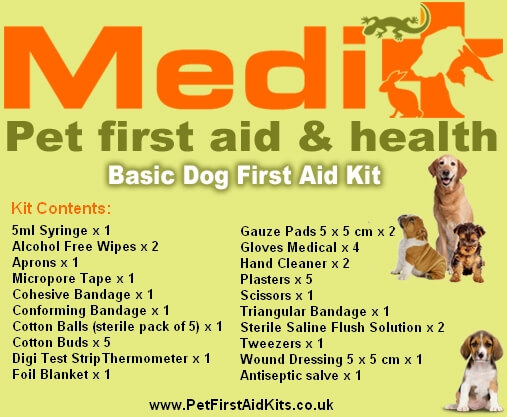
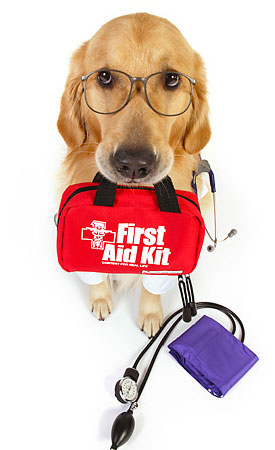
You can print out a copy of this checklist to use as a shopping list, and keep a copy on your refrigerator or next to your pet first aid kit for quick reference in emergencies.
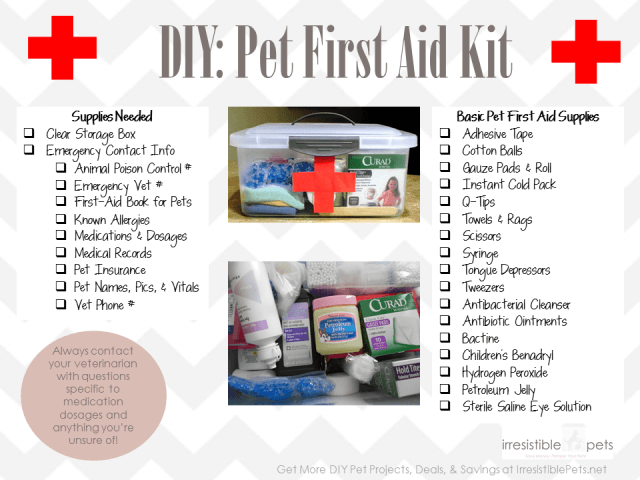
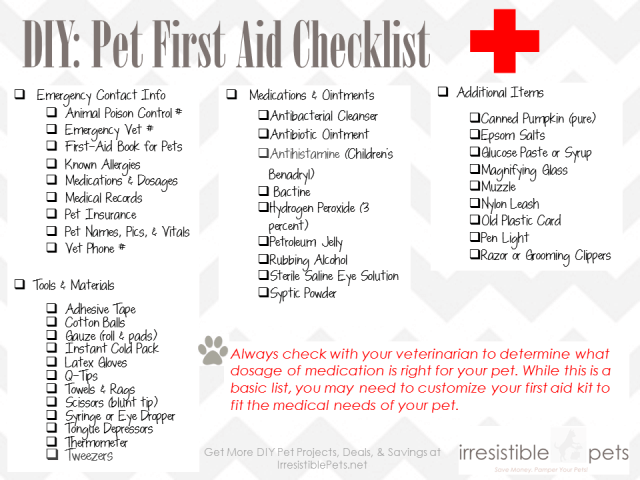



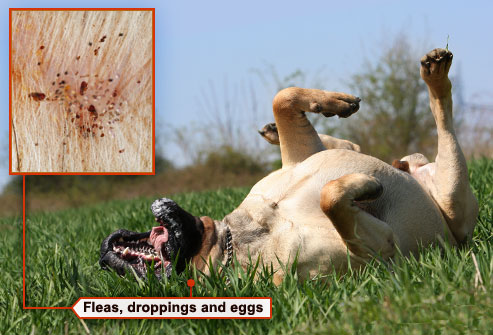
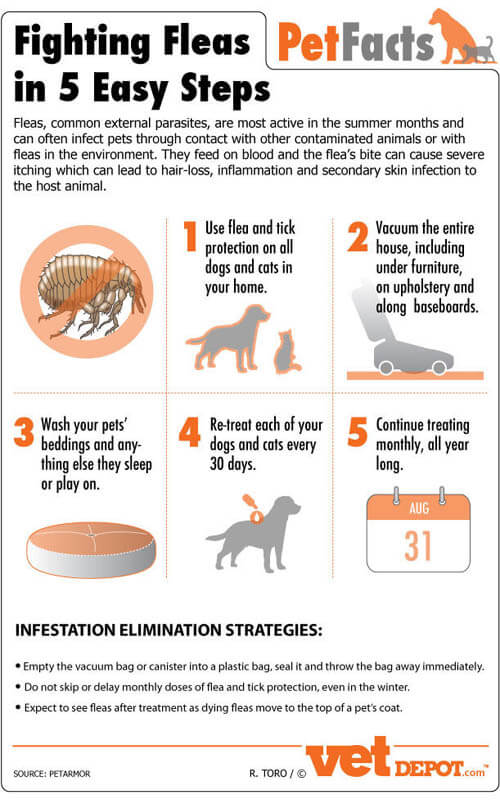


If you want to give your four-legged friend a cool treat on a hot summer day, just head to into the kitchen and grab a blender. This simple, no-frills DIY dog ice cream recipe will have your dog smacking his lips in anticipation. Canine-friendly foods such as pumpkin, plain yogurt, bananas and peanut butter combine to make this dog ice cream a tasty and healthy, frozen treat for dogs. Make sure to talk to your veterinarian before feeding your dog any new foods!
HOMEMADE DIY DOG ICE-CREAM RECIPE 1
What you need to make dog ice cream:
2 Cups Plain Organic Yogurt
2 Ripe Bananas
1 Cup Peanut Butter
1/2 Cup Pumpkin Puree
Disposable Cups
Tray
Spoon
THE INSTRUCTIONS:
1. Combine all ingredients in blender. Blend until smooth.
2. Spoon mixture into disposable cups. Place cups onto tray.
3. Place tray in freezer. Allow to freeze for three hours.
4. Remove from freezer and share with the pups!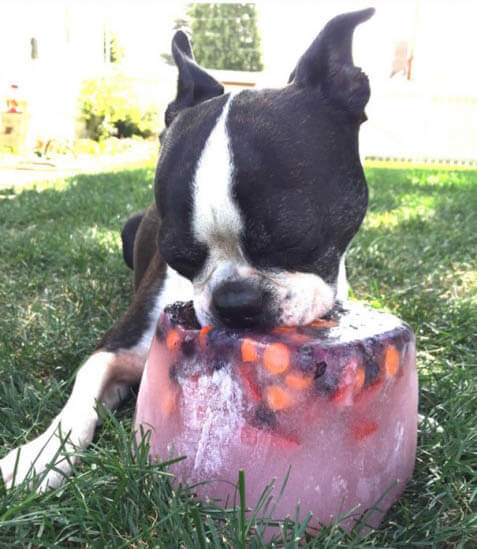
HOMEMADE DIY DOG ICE-CREAM RECIPE 2
Three 6-ounce containers of plain low-fat yogurt
0.5 cup of low sodium peanut butter
One 4-ounce jar of banana baby food
1 Tablespoon honey
Mix together and pour into disposable paper cups. Add dog bones on top of mixture to serve as "handles." Place cups on freezer. Once frozen, serve by peeling away the paper cup!
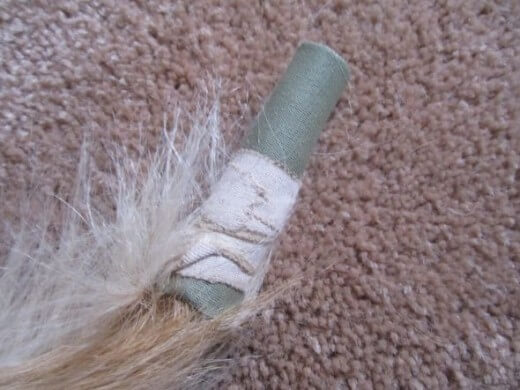
Happy Tail is not an Easy Thing to Heal! What you are looking at is actually a piece of neoprene, which once had been part of a sleeve for a Camelbak drinking tube. We had an extra one and cut off a piece about three inches long. This flexible material is also often used in products like wetsuits, laptop sleeves, and braces for knees, ankles, wrists, etc. and it form-fits itself snuggly but not too tightly around whatever it's on. The neoprene had enough "grab" not to slip off of Remmy's fur, even when he started wagging. And as of this writing, our homemade tail tip protector - which is open at the end, just beyond the tip to allow for air flow but still protect it has been on there for four days, and Remmy hasn't attempted to get it off.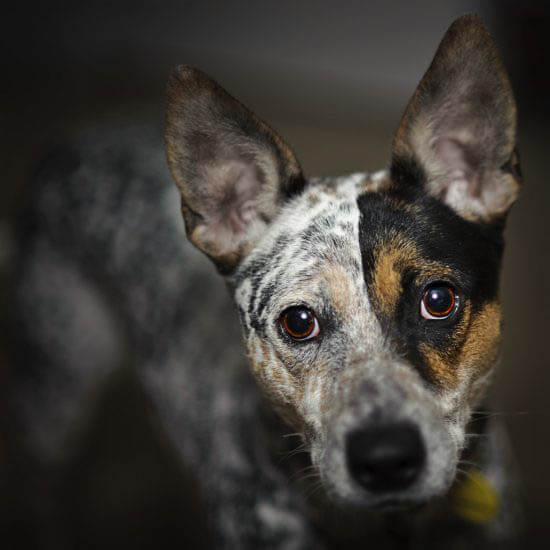
So, we are assuming it's comfortable and not too tight. In the meantime, he's been his usual wagging, nutty self, and periodic tail tip checks have shown that it's still looking good despite whacking it all over the house. This is the same neoprene tubing we found in the house, which you can buy separately. Any piece of neoprene will do, but this is nice because it's already formed into a tube. HOWEVER... we did cut the tubing all the way open along the side. We didn't attempt to shove it over the tip of the tail. Black Hydration Pack Insulated Drink Tube Cover. Medical tape adheres well to the neoprene and is nice and flexible. It's also fairly easy to tear off once you are done wrapping and doesn't peel off easily, making it harder for a dog to nibble off.
Simple Steps to Patch Up a Bleeding Tail
Simple, that is, if you can get your dog to lie still for a few minutes.
Remmy did require being lay upon to get him to calm down and hold still long enough for us to take care of the wound, but even once he was relaxed, canine nurse Jazzy got in on the action. So, next time and w фre pretty sure there will be a next time once we remove this dressing, Jazzy will be removed from the room during this short process.
1. Clean the wound with either warm water and a mild soap or some type of wound cleanser. Even contact lens solution will work, so I've heard.
2. Let the tip of the tail air-dry for a minute, then treat with antibacterial spray and, even better, add some Bag-Balm after that. Cut a piece of neoprene at least three inches long. If it's tubing like we used, I'd cut the tube open rather than try to force it onto the tail over the tip.
3. Place the neoprene around the tail, allowing it to extend roughly half an inch beyond the tip. Use medical tape to wrap and secure the neoprene securely but not too tightly. We found we were able to really get it snug without it seeming to bother our dog. The neoprene provided enough padding that the tape didn't constrict his tail.
4. Don't tape over the open end of the neoprene. Check the tail daily for any sign of infection. If the tail doesn't quickly appear to be healing or if the wound looks "substantial" once you have cleaned it and can get a good look at it & contact your vet. Minor tail wounds can bleed a lot, so clean it well and get a good look at it to determine the extent of the cut or split.
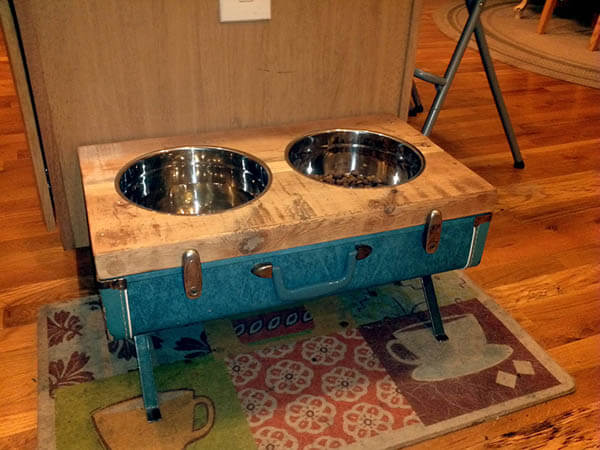
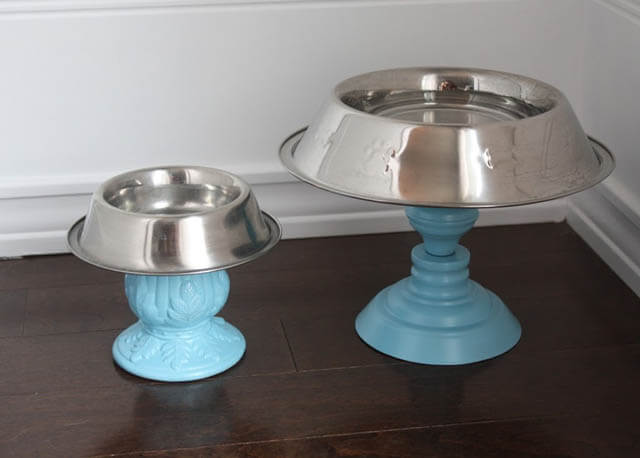
WATCH VIDEO
HOW TO MAKE DOG BOWL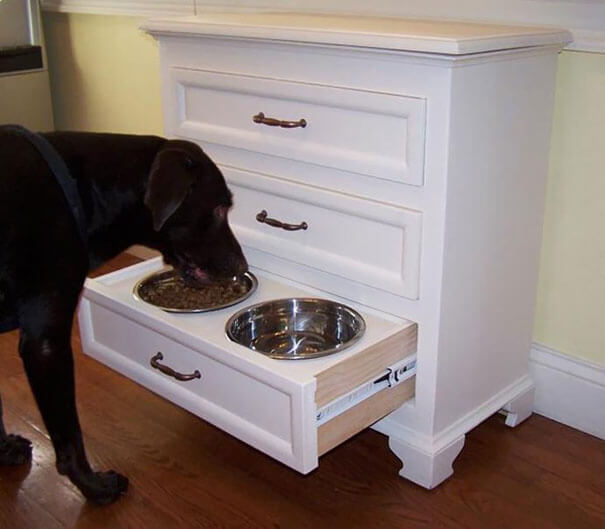
DIY DOG FEEDER
You will need...
Old or new duckboard.
Sandpaper (if board is old).
Paint in your favourite colour.
White paint.
Paint brush.
Craft paint sealer.
The directions:
1. Sand down your old duckboard to get a smooth finish to the wooden slats on top. Clean off all residue. You don't need to do this if board is new.
2. Mix your paints - to get the ombre effect you will need the full colour for Slat #1, a light shade - your original colour mixed with white, for Slat #2 and white paint for Slat #3. Feel free to experiment if you want to paint every slat. I just liked the rustic feel by leaving the remaining slats.
3. Coat each slat with a number of coats, allowing each coat to fully dry before the next, until you reach desired coverage.
4. Apply a craft paint sealant to all painted slats.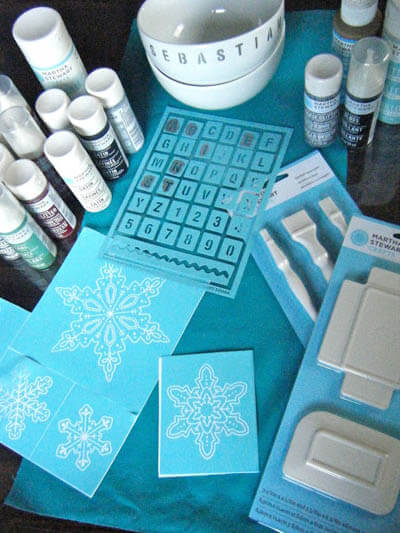
PERSONALIZED
DIY DOG BOWL
Requirements
Adhesive letter stencils
Dauber set - mini sponges on handled tips
Metallic Glass Paint
Snowflake adhesive silkscreens
Handled squeegee brushes
Multi-Surface Satin Acrylic Craft Paint in "Wedding Cake" white
Directions
We added personalization to both the dog bowls and placemat with letter adhesive stencils from Martha Stewart Crafts. Adhesives make everything better, including letter spacing! Plus you can reuse them over and over. Simply position stencils on your item and lightly press small dauber sponge dipped in paint over stencil. Let paint sit for a few minutes and then peel off the stencils. For our placemat, we applied snowflake adhesive silkscreens randomly to a 10.5 X 22" piece of fabric. These measurements were based on Sebastian's eating area. Placemat can also be square, shaped like a bone, etc! Use Multi-Surface Acrylic Craft Paint for fabric application. Start by squirting some of the paint directly onto the stencil and then use a handled squeegee for an even spread.
1. Apply an iron-on vinyl sheet to top of entire surface.
2. Cut another 10.5 X 22" piece of fabric for bottom of placemat.
3. Pin bottom piece to top piece with vinyl right sides together.
4. Sew them with a 1/4" seam allowance and leave at least a 3-4" opening.
5. Clip all 4 corners.
6. Turn place mat right side out through 3" opening.
7. Press flat.
8. Fold in opening 1/4".
9. Topstitch entire placemat in thread color of your choice.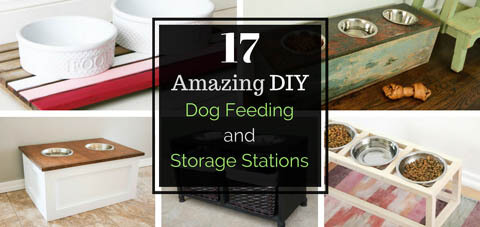
CHECK 17 AMAZING DIY
DOG BOWLS, FEEDING STATIONS
FEEDERS AND PLACEMATS
at WWW.PLAYBARKRUN.COM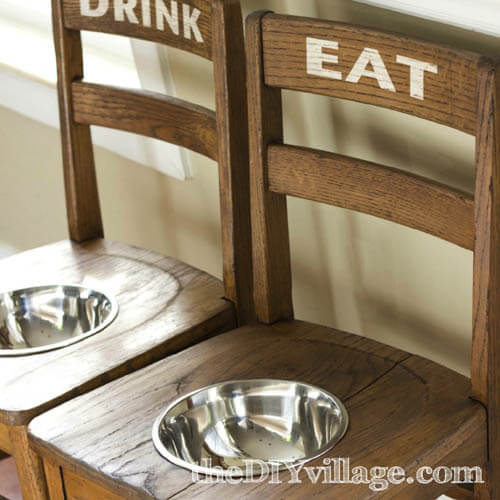
HOW TO MAKE DIY
ELEVATED DOG FOOD DISPENSER GUIDE
by WWW.THEDIYVILLAGE.COM
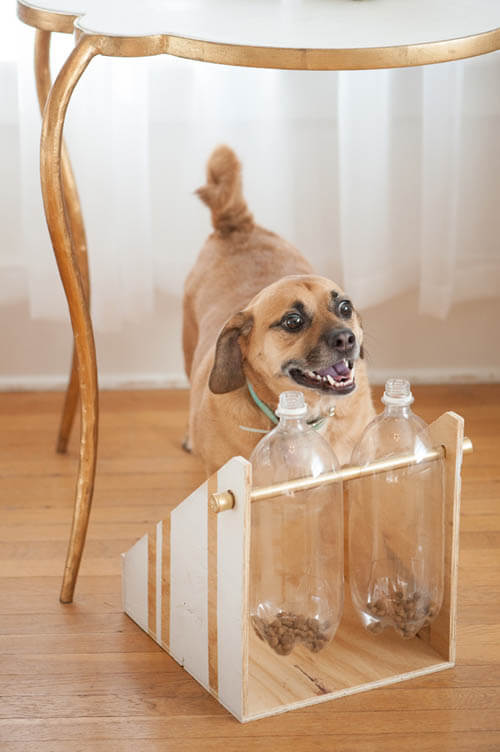
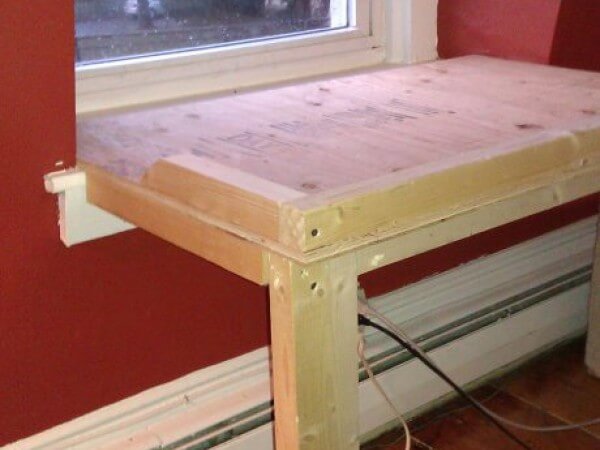
Have you ever thought about life through a dog's eye? Windows aren't made so dogs can see the outdoors, except for Great Danes. My Basset Hound stands on his short hind legs with his front legs resting on the windowsill just to get a glimpse of the outside world. He has done this quite a bit for a long time, but this weekend I decided that I was going to make his dreams come true. I started by rummaging around the basement for scraps of wood. I had an idea of a window seat and it was very simple. I took all my measurements and made my cuts. The platform is made out of plywood. The two legs are made out of two-by-fours.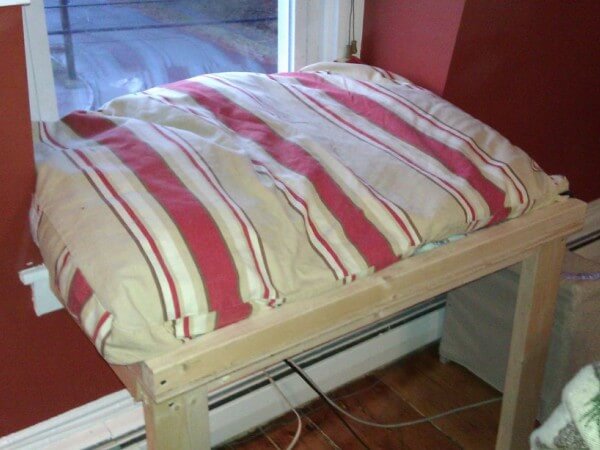
I then added a 1-inch lip around the side to protect him from slipping off during one of his deep sleeps. You can customize to your dogs liking. I have pocket windows in my house so I didn't even have to attach the seat to the windowsill - you may need to do this depending on what your windowsill is like. Lastly, I made a little mattress out of mattress pads and a blanket. He already had a set of doggy stairs, so I set them next to the new window seat. He goes up there every morning to watch the morning traffic and to soak up the sun. He even sleeps there some nights. He absolutely loves that window spot. I thought I would spread the word to all of my readers. Making your dog happy will make everyone happy. Enjoy!
CHECK 6 GREAT DIY
DOG WINDOW PERCHES
by WWW.GOPETPLAN.COM
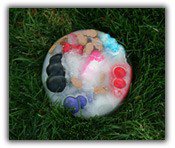
Wondering what to stuff inside of your dog's Kong toy?
The following dog recipes make delicious treats, whether you decide to stuff them inside a Kong toy, or just serve them up as special homemade treats for your dog - anytime! You can either make up your own Kong recipes (based on your dog's personal tastes) using a combination of 2 or more pet friendly foods, or you can rely on pre-tested fillings that have worked well for others.
Following are some great Kong recipes that have worked well for other dog owners. That said, use your own judgment in deciding whether or not to fill your dog's Kong toy with human foods.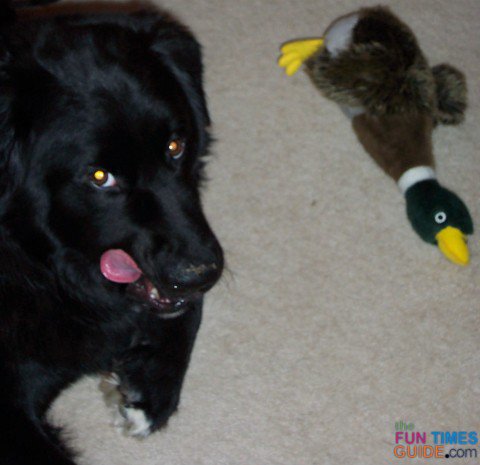
Smear some peanut butter on a slice of bread. Fold up the bread and cram it into the Kong. Freeze & serve.
Use your finger to coat the inside of the Kong with something sticky, like peanut butter or honey, then toss medium sized dog treats inside - the kind that barely fit inside the hole and are hard to get out.
Try microwaving some peanut butter or cheese first - this makes it runny and easy to pour into the KONG and leaves very little to waste. Then layer with another food item. Then freeze. The microwaved peanut butter & cheese fills every crack and crevice inside the Kong acting as a glue around the other ingredients making it much more challenging for your dog.
For the simplest Kong treat of all, just smear a little peanut butter or honey around the inside of the Kong. You'd be surprised how long your dog will work at this simple little treat.
Moisten your dog's dry kibble, either with water, or with some much more flavorful low salt broth. Then spoon it into the Kong toy. Freeze & serve.
Cram a small piece of dog biscuit or a dog liver treat, into the small hole of the Kong. Smear a little honey or Kong Stuff 'n product around the inside. Fill it up with dry dog food. Then block the big hole with dog biscuits placed sideways inside. Make sure they are not impossible for your dog to get out, though.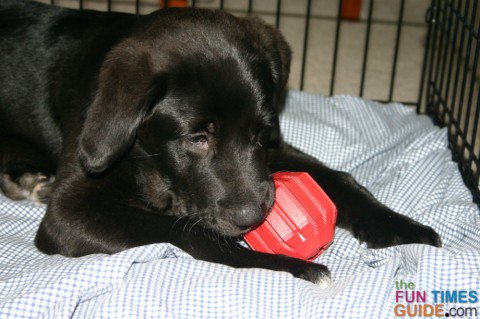
More Recipes for Kong Toys
CHEESY ELVIS: Combine a ripe banana, 3 spoonfuls of peanut butter, and a slice of cheese. Mix until blended well. Fill the Kong and freeze.
MONSTER MASH: Instant mashed potatoes without the salt, or leftover mashed potatoes from dinner, mixed with crushed dog biscuits.
DOGGIE OMLET: Combine a scrambled egg, some beef, yogurt, cheese and mashed potatoes all together
FIBER CRUNCH: Combine bran cereal with some peanut butter.
KONGSICLE JERKY POPS: The equivalent of a popsicle. Seal the small hole of the Kong toy with peanut butter. Fill to the rim with water and a pinch of bouillon or just use chicken broth instead. Place a stick or two of beef jerky inside. Freeze. This one gets messy in a hurry, so it's recommended only for outdoor use.
GOOEY CHEERIOS: Combine cheerios and peanut butter. Freeze.
FRUIT KITTY NOODLES: Mix together some dried fruit, cooked pasta, banana and dry cat food.
BANANA YOGURT: Plain yogurt and mashed bananas. You can also add a little peanut butter or other fruits. Then freeze it.
PEANUT BUTTER GLUE: Fill Kong 1/3rd full of dog food. Pour in melted peanut butter after it has cooled from microwaving. Add more dog food, followed by more melted peanut butter until the Kong toy is full. Freeze until solid.
ROCK-HARD KIBBLE: Combine some of your dog's regular food with cream cheese, which acts as a cement, keeping everything inside.
STICKY BREAD: Smear peanut butter on a piece of bread. Fold it over and stuff inside the Kong. Mix together plain yogurt with some fruits or vegetables (carrots, celery) and pour inside. Freeze. The yogurt sticks to the bread holding everything together.
APPLE PIE: Squeeze a small piece of apple into the tiny hole. Fill the Kong with a small amount of plain yogurt. Add a few slices of mashed banana, more apple, yogurt, banana. End with a slice of banana and chunk of peanut butter on the top.
CRUNCH 'N MUNCH: Combine crumbled rice cakes and dried fruit with some cream cheese and plain croutons.
PUMPKIN PIECES: Combine some plain yogurt, canned pumpkin, and cooked rice in a small baggie. Mix well inside the bag, then snip off a corner of the bag and squeeze it into the Kong toy. Freeze.
KIBBLE-SICLE: Put a glob of peanut butter into the Kong first. Then add some dry dog food. Pour in some chicken broth. Add some more peanut butter, followed by more dry dogfood. End with another glob of peanut butter at the very top. Freeze until solid.
OLD STANDBY: Soak some of your dog's regular food in water or chicken broth for a brief time before placing it inside a Kong, then freeze.
MUTT & CHEESE: Melt a cube of Velveeta cheese in the microwave, until it's gooey not runny. Fill the Kong toy with cooked noodles. Pour cheese over noodles.
FROZEN BONZ: Mix up some bananas, unsweetened applesauce, oatmeal, peanut butter, and plain yogurt. Freeze.
CHEEZY DELIGHT: Combine small chunks of cheese or cheese spread with some dry dogfood and microwave until the cheese melts. Let it cool completely, then pour into the Kong toy. Freeze thoroughly.
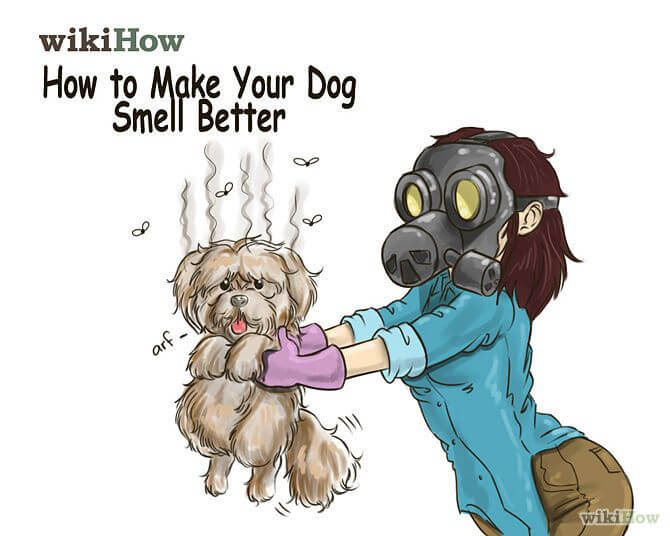
For Surface Odors
The ideas below are intended for deeply ingrained odors. If you just need to get rid of a little "surface pet odor", then this excellent recipe should work just about perfectly: Put 1 teaspoon of baking soda and 1 tablespoon of white vinegar in a clean spray bottle. Once the fizzing stops, add 2 cups of warm water. Wait to make sure that there is no more foaming, and then put in the spray attachment. Shake before using.
Dog Body Odor in Soft Furnishings
Our dog is not allowed on the furniture, and she would never dream of getting up on the couch when we are home. Unfortunately she has no such issues if we are out of the house. As a result, I have a beautiful couch that seems to acquire "doggy odor". Our current couch fabric needs to be dry-cleaned, so once every year or so we have someone come in and professionally dry-clean the furniture. Although I would prefer a homemade pet odor removal technique, that's what we have to do. It works just fine. Our previous couch was water-safe, so we borrowed a carpet cleaner and cleaned it, always following the cleaning with a warm water and white vinegar rinse.
Dog Body Odor in Carpets
Doggy odor in the carpet is an unpleasant thing - especially if you own a water dog. However, these can be removed using the appropriate cleaning technique for your carpet. If you cleaning the carpets yourself, don't forget that all important final rinse with a little white vinegar in plain water. These simple techniques work quite well for basic dog odor removal.
Dog Ear Odor
Dog ear odor is normally the result of an infestation of mites or infection. If your dog's ears have an unpleaseant odor, you need to take them to the vet. Untreated ear issues can lead to deafness.
Pet Urine Odor in Soft Furnishings
You can follow the same basic instructions as for carpets : for upholstered furnishings that are water-safe, and even for mattresses. The only possible complications for upholstered furnishings are the following: If the fabric is not water safe - you will have to call in professionals. Be sure to tell them that there are pet urine stains and odors on the furniture. There is a possibility that a cushion or two may have to be re-stuffed if the extraction process did not get the smell out of the foam.
Pet Urine Odor in Concrete
I tried washing and scrubbing and pouring vinegar on it, and an enzyme-based deodorizer, but the smell just kept on coming back. Finally I gave up and tried another approach, and it worked. Scrub the concrete with hot water and a little dish soap. Allow to soak for a few minutes, then dry it off with an old towel. Get some of that carpet cleaner designed specifically for removing pet odor and spray it on liberally. Let it soak in and dry. Once it is dry, spray it down with hot water and wipe it up with an old towel or paper towels. Let dry, and repeat. Once the smell is gone, rinse the entire area with hot water and a little white vinegar to remove any chemical residues. Is your dog fond of peeing on the carpet? They usually are! Not to worry - this anti-bacterial, disinfecting carpet powder with a lovely floral and refreshing aroma will dispel all evidence of unsightly stenches!
TOP HEALTHY NATURAL OIL RECIPES
FOR HOMEMADE DOG BAD SMELL REMOVER
1. DIY Carpet Powder for Pet Urine
8oz glass container or cheese shaker
1 cup of baking soda
10 drops of lavender
10 drops of orange
5 drops of cedarwood
Method:
In a cheese shaker jar (8 oz or more), pour in 1 cup of baking soda and add in the essential oils
Screw on the lid and shake to get all the oils mixed in with the soda.
Allow the powder to rest for 20 minutes so that the oils can get absorbed into the baking soda crystals.
Now dust this carpet powder all over the areas of the carpet where there are urine stains.
Allow the powder to absorb the odors for at least 20 minutes.
Vacuum as usual.
2. Non-Toxic Room Spray
8 oz spray bottle
0.5 cup of rubbing alcohol
0.5 cup of hydrosol or distilled water
10 drops of orange oil
10 drops of rosemary oil
5 drops of lemongrass oil
Method:
Measure out and carefully pour all the above ingredients into your spray bottle.
Close the lid and shake gently to mix all the ingredients.
Now spray 4 - 5 times around the room you want to freshen up.
Be careful not to spray near your eyes or your dogs' eyes.
3. Bad Odor Absorbent
You can make this easy bad odor absorbent jars that you can keep in strategic corners of the room. They will suck out bad odor from the air and dispel aromatic essential oils into the atmosphere. What you need:
Cheese cloth and string - to cover the jars
3 - 4 small 2 oz glass jars
Pyrex measuring cup
1 cup of baking soda
10 drops of eucalyptus oil
5 drops of peppermint oil
5 drops of lemon essential oil
Method:
In a measuring cup, pour the baking soda and drop in the essential oils.
Stir them all in using the back of a spatula.
Now transfer this essential oil-infused baking soda into your small glass jars, dividing them equally.
Cut out your cheese cloth to make covers for the jars so that nothing drops into them.
Use strings to wrap around the cheesecloth and secure them to the mouth of the jar.
Now your odor absorbers are ready! Place them in strategic corners of the room to absorb malodors through the day and night.
Tip: You can also place these in the bathroom to get rid of bathroom smells. Replace the baking soda and essential oils every 2 weeks.
4. Stink-Be-Gone Blend
Make a batch of this pet-safe essential oil blend that you can diffuse in your rooms. What you need:
A BPA-free diffuser
30 drops of lavender
30 drops of orange
10 drops of eucalyptus
10 drops of peppermint
Amber dropper bottle
Method:
In an amber dropper bottle, measure out and pour the essential oils in.
Screw on the lid and shake the bottle to blend all the essential oils together.
You can diffuse 1 - 3 drops of this blend for not more than 1 hour every day.
5. Refreshing Bath Time
A bath is a great way to keep your pets smelling fresh. What you need:
2 tablespoons of sulfate-free shampoo or liquid castile soap
4 drops of lavender essential oil
Method:
When giving your dog a bath, simply add some lavender essential oil to your dog shampoo or liquid castile soap to neutralize the odors that are lodged within the fur. Rinse and repeat as necessary.
This also works as a natural flea and tick repellent!
CHECK 3 HOMEMADE
DIY DOG SMELL REPELLERS !
READ HOW TO MAKE
YOUR DOG SMELL BETTER
5 WAYS by WWW.WIKIHOW.COM
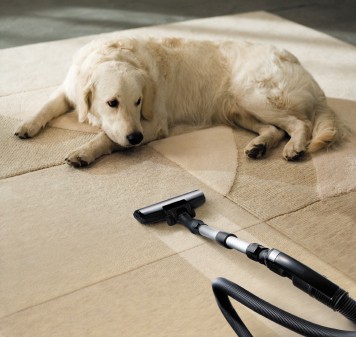
Homemade dog perfume is a great way to keep your dog smelling great, but the real advantage is in the health benefits! Learn how to make dog perfume to suit your dog's needs, whether it be for healing your dog's dry skin, making them feel less anxious, or repelling fleas and ticks. Your dog can smell great and be healthy at the exact same time! If your dog is at risk for fleas and ticks, try making a dog perfume out of lavender, eucalyptus, or lemon essential oils. Simply apply 3-6 drops of any of these scents - any citrus works to repel fleas and ticks if you would rather use orange or lime instead of lemon to a 12 ounce spray bottle, add water, and spritz away! For a dog with dry skin who is in need of tick and flea repelling, go with citrus - those oils are great for dry skin. Vanilla mixed with lavender is a great perfume for dogs who are nervous or anxious, to make them feel more calm.
Add essential oils to your preference. For irritated skin and a dog who is nervous, add a drop or so of vanilla to eucalyptus to calm your dog and keep them from itching at the same time.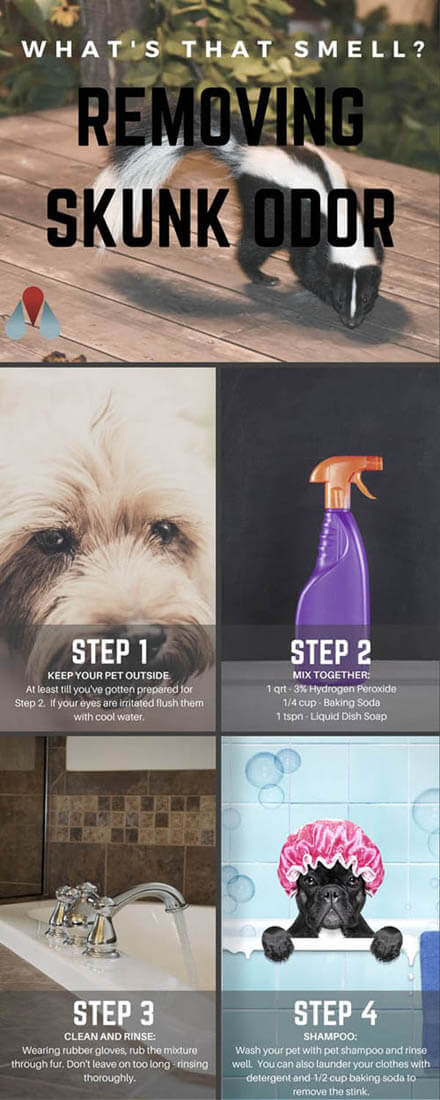
Super itchy dogs can be relieved and still have their great perfume scent by adding a few drops of lavender, citrus, or eucalyptus oils to 1/4 cup of baking soda, sprinkled on the dog and then combed out. The baking soda will soothe your dog's skin, and the essential oils will leave their scent behind. Use caution with scents like cinnamon, peppermint, and other "hot" essential oils. You may enjoy the smell, but they may burn or irritate your dog. However, peppermint is calming and soothes irritated skin if a drop or so is added to 12 ounces of water in a spray bottle. Just be careful with the use of peppermint. Too much will make your dog uncomfortable, but a little bit can certainly work wonders.
CHECK 21 NATURAL
HOMEMADE DOG REMEDIES
at WWW.TREEHUGGER.COM !

Mosquitoes are a bother to humans, especially during summer months and in wet or humid climates. For humans, usually mosquitoes are dealt with by using citronella candles and bug spray. However, mosquitoes can be a nuisance for your dog as well. Treatments used on humans are not recommended. Instead, try natural remedies you can make at home to keep your furry friend safe from mosquitoes.
Citrus Peels
Citrus is a natural repellent to mosquitoes, ticks and fleas. Each time you use a citrus fruit, keep the peels for use in this homemade dog-friendly solution. Fill a pot with leftover citrus peels, such as from used lemons, oranges and grapefruit. Cover the peels with water and bring to a boil on the stove. Remove from the heat and allow the citrus water to cool. Discard the peels. Citrus water will not only make your dog smell fresh, it will act as a natural deterrent to mosquitoes and fleas.
Essential Oils
Essential oils will keep your dog smelling fresh and safe from mosquito bites. Consider adding in a few drops of essential oils to the citrus water mixture. Some oils are natural mosquito repellents. These include peppermint, geranium, sage, lavender, eucalyptus, lemongrass, sandalwood and patchouli. Pour the mixture into a spray bottle and shake well to combine.
Catnip
It may be a favorite of cats, but it is not liked by mosquitoes. To use the catnip, sprinkle a few loose pieces into the still warm citrus water and let it steep as it cools. Pour into a spray bottle.
To Use
Before using the homemade repellents, bathe your dog. After you rinse away any soap, spray him with the citrus water, catnip or essential oil mixture. Spray along the dog's back, legs, tail and hindquarters, as well as around his neck and ears where mosquitoes like to bite. Also, rub a few drops of essential oil directly onto the dog's shoulder blades. This is an area where your dog cannot lick. The smell of these oils can be a powerful deterrent against mosquitoes, fleas and other insects. Periodically treat your dog with more citrus water or essential oils as needed. Keep a spray bottle full of extra mosquito repellent solution and spritz before taking him out on walks or letting him explore.
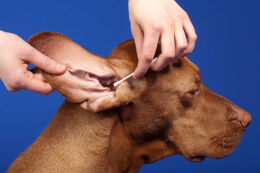
Pet dogs often contract ear infections for a variety of reasons. There are many ear cleaning solutions which are available in the market for treating the same. If your dog is often affected by ear infections, and you have used the ear cleaning solution prescribed by the vet but it has made no difference, you should try making the solution at home. Most treatment procedures for ear infections are expensive as the cost includes a visit to the vet, along with the professional fees charged for treatment, dos and don'ts of the treatment, and the actual medication to be purchased. The homemade solution thus proves to be inexpensive and more effective.
THE RECIPE
The ingredients required for making this cleaning solution are boric acid powder, white vinegar, isopropyl alcohol or rubbing alcohol, and antiseptic solution, also known as "Povidone-Iodine" solution. There are many versions of antiseptic solutions in the market, but remember, you should not use antiseptic scrubs since scrub detergents are added to them. An empty bottle will also be required to store the solution. Choose a bottle with an applicator cap which will enable you to apply the solution directly into your dog's ears. The bottle should have ounce markings on its exterior, as these will help you know the amount of solution you are using in each ear. Boric acid is used to manufacture illegal drugs, hence there are regulations on its usage. There is a possibility that you will have to buy boric acid powder over the counter.
THE DIRECTIONS
1. In the empty bottle, take 6 ounces of rubbing alcohol. To get the exact measurements of the alcohol, you can use the measurements on the bottle.
2. Add half a tablespoon of boric acid powder to the alcohol. Be careful while adding so that the powder does not fall on your clothes or hands. In case it does, wash it off immediately. A funnel made of paper can be used for the adding process. Close the bottle with the cap and then shake it till the boric acid powder dissolves in the alcohol. This may take a while.
3. After the powder dissolves, add two ounces of white vinegar to the solution in the bottle. Again, shake the bottle well.
4. Finally, add two teaspoons of antiseptic solution to the mixture. The solution is ready. The end product will have a color similar to that of iced tea.
The most difficult part of the procedure is to get hold of your dog and spray the solution into his/her ear, so take the help of another person. One person will have to hold the dog and the other will be required to spray the solution in the dog's ear. Fill up the ear canal with the solution, and then cover the ear and shake it with your hand. Let the solution slosh about in the ear. If you do not undertake this step, your dog will shake his/her head and the solution will come out of the ear. Use the solution till the infection subsides. Then you can use it once a week.
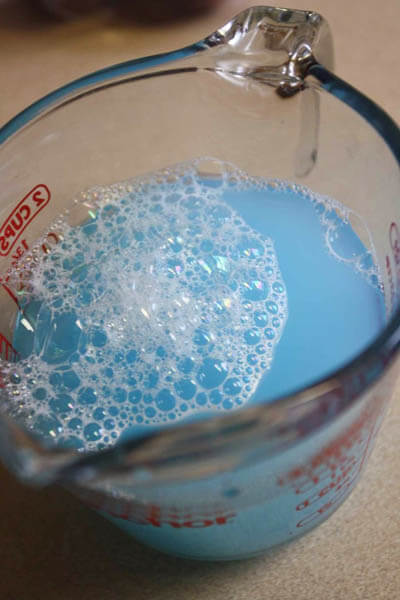
If you have a dog that spends a good amount of time outside, this is a perfect solution to that musty sweat smell your four legged family member may have after a day of play. Not only will your dog LOVE you after using this quick Homemade Dog Shampoo and Cleaner, but so will your wallet! Simply take 1 cup dish soap, 1 cup white vinegar and 1 quart of warm water and mix. Make sure that it's all mixed up, and if you want to get fancy put in an old shampoo bottle, or just mix in with bath water for your dog and lather up that stinky puppy. Let it works its magic for about five minutes, then rinse.
Using some simple ingredients, one can craft a very high quality dog shampoo that smells wonderful, cleans effectively, and moisturizes your dog to cut down on itching. You will want to use it on your own hair and skin!
Ingredients:
1/2 cup liquid Castile soap
1/4 cup Apple Cider Vinegar
1/4 cup ground Oatmeal
1 T Lemon Juice
1 T Glycerin
1 T olive oil
2 T water
1 T liquid dish soap
1/4 cup Aloe
Quick Note on Soap
The base of the shampoo is going to be liquid Castile soap. Soap is made from two things: Lye and oil/fat.
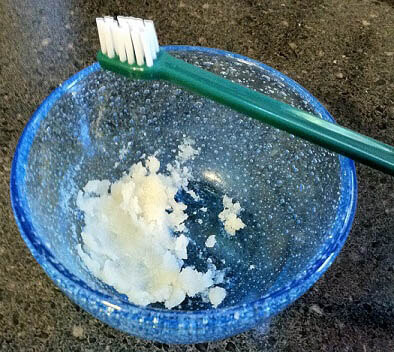
You can store in the refrigerator for up to 2 months.
2 Tablespoon Baking Soda
a pinch of Salt - Maybe like 10-15 grains
1 Tablespoon Gelatin
6 drops Peppermint Oil
Note:
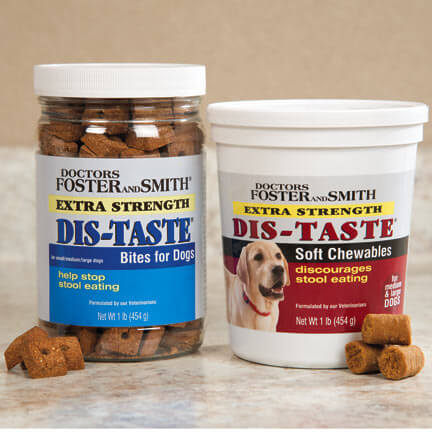
The smell and taste of bitter apple spray discourages dogs from chewing on your stuff, but frequently buying the product at pet stores can be pricy. If the non-toxic spray keeps your pooch from chewing that copy of "Brothers Karamazov" you just bought or your favorite pair of boots, consider making your own at a fraction of the cost.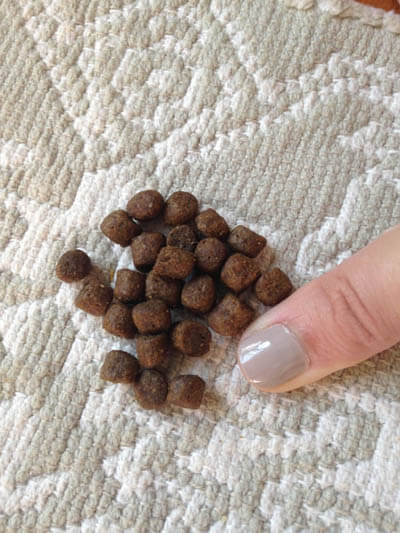
Empty Spray Bottle
Purchase an empty spray bottle at a dollar or discount shop. Chain pharmacies carry them as well, typically in the cosmetics or hair accessories aisles. If you re-purpose a bottle of cleaner, rinse it out thoroughly with hot water and wash it out with soap. No traces of substances that may be toxic to your pooch should remain.
Apple Cider Vinegar
Apple cider vinegar is the base for most bitter apple sprays. You can spray it on items you don't want your dog to chew on without damaging them. The tart taste serves as a repellent. Pour 2 cups of apple cider vinegar and 1 cup of white vinegar into the spray bottle. Shake well, and spray on all items you want your dog to stop chewing.
Lemon Juice
If you don't have apple cider vinegar handy, lemon juice works, too. Pour 2 cups of lemon juice and 1 cup of white vinegar into the spray bottle. Shake well, and spray. The lemon juice will also taste tart, and discourage your beastie from chewing up the table legs.
Spray Away
Reapply the deterrent spray to your things every week. If you forget, then the taste will fade and Fido will go back to chewing up that sofa. Be consistent in reapplication so your four-legged pal gets the message.
Drive the Message Home
Your clever pooch is learning to not chew on your things because they taste bad. Reinforce his learning when you catch him in the act. Stand tall, hold out your finger and give him a stern "No!" Getting upset will only serve to confuse him, and he might even misinterpret your yelling as an invitation to play. If you don't catch him in the act, hold up your chewed-up sneaker and say "No!" Using the deterrent spray in tandem with training is an effective way to get your pooch to not chew up all your worldly possessions. Bitter apple spray is not a substitute for behavioral training.
Warnings and Considerations
Never spray repellent, even non-toxic homemade deterrent spray into your dog's eyes. And never apply even homemade deterrent spray onto your dog's skin, in cases where you want to prevent him from chewing on himself, such as his tail or paws. Skin could be raw or broken and will need to be reviewed by a veterinarian to see if topical antibiotics are required. Consider, too, that all repellants are not created equal, and bitter apple spray does not discourage all dogs from chewing. Additionally, some dogs become tolerant to the taste.
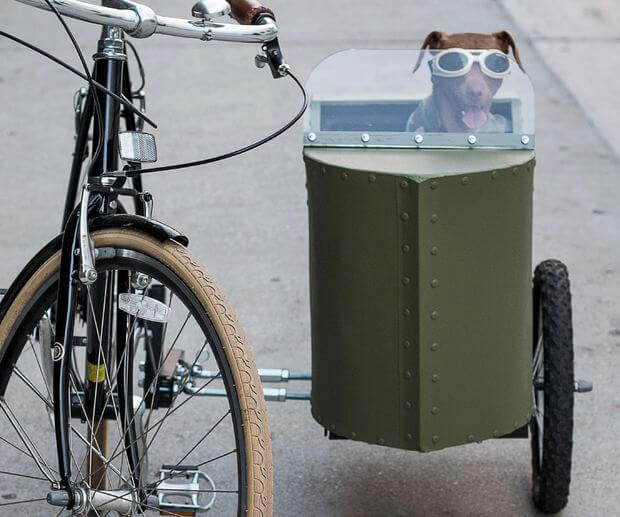
You shouldn't need to muzzle your dog often. However, muzzling your pooch is appropriate in some situations, like if you're unsure if your dog will act aggressively in a new environment. While muzzles come in various qualities and styles, many of them are expensive. Instead, purchase a few cheap materials to make a custom-made muzzle for your furry friend, or use materials you already have at home to make an emergency one. The ability to make a homemade muzzle quickly out of common materials found in your house is a handy skill to have in emergencies. An injured or frightened dog will often bite. Being able to prevent this and keep your dog under control could save injury to yourself, your family or your dog.
HOMEMADE DOG MUZZLE #1
1. Tie a slipknot in the center of the rope to make a muzzle. This knot should be large enough to slip over your dog's nose and mouth and tighten down.
2. Calm your dog before muzzling it. It's easy for an agitated dog to turn and bite. Try to stand behind the dog, speak calmly to it and let it know where you are at all times. Gently slip the muzzle over the dog's nose and mouth. Arrange it so that the muzzle is closer to the eyes.
3. Quickly tighten the muzzle. Wrap the trailing ends of the rope around the dog's mouth once or twice to secure it. Then tie the ends behind the dog's head under the ears. Tie the muzzle in a bow rather than a knot so that it can be quickly removed if need be.
4. Watch your pet carefully. If it's having trouble breathing, passes out or may vomit, remove the muzzle.
HOMEMADE DOG MUZZLE #2
1. Take Measurements - To make a custom-made muzzle, take the measurements of your dog's snout. Measure around the dog's snout, along the jawline to behind the ear, and across the back of the head. Mark these measurements on the nylon material. Add 1 inch to the snout and jawline measurements. Add 6 inches to the piece for across the back of the head. These additions allow for hemming and attaching the buckle.
2. Cut the Pieces - Next, cut the nylon webbing according to the measurements. Remember to cut the piece for across the dog's head in half. This is where the buckle will be attached.
3. Assemble the Muzzle - Sew the nylon-webbing snout piece in a circle. Next, attach the jawline pieces on either side of the snout piece. Thread each outside end of the buckle 3 inches on each piece of the head piece. Then, fold the nylon webbing back over itself and sew it to secure the buckle in place. Do this on each of the top halves. Finally, sew each half to the already sewn muzzle. The best way to make the hems on all the places stitched together is to sew a rectangle, and then make an "X" pattern in the center of the rectangle.
4. Complete the Final Touches - After the muzzle is completely assembled, ensure that it fits properly. Gently put your canine into the muzzle. Feel free to add embellishments.
HOMEMADE EMERGENCY DOG MUZZLE
1. Find Materials - To make a muzzle quickly, all you need is a long piece of cloth. Nylon leashes, neck ties, and pantyhose are just a few examples of materials that you can use.
2. Make a Loop - Loosely make a loop in the center of the material. Then, have a helper hold the animal by the head, or stand behind the dog's head and over its body to prevent it from biting. Only do this if you are sure of the animal's temper. Do not try to approach or muzzle a stray dog or one of an unknown temper.
3. Slip the Dog's Nose Through - Gently slip the dog's nose and snout through the loop. Then, tighten the loop, so that it's snug but not tight. Pull the ends up behind the dog's ears.
4. Tie the Material - Tie the material into a bow to snugly secure the muzzle. Use a bow instead of a knot to ensure a quick release if necessary.
Warning: Some dogs don't like their faces or mouths touched, and touching them can make some canines aggressive. To prevent being bitten, know the dog's temper before trying to muzzle it. Always take the appropriate safety precautions when working with any animal, especially one of unknown habits or temper.
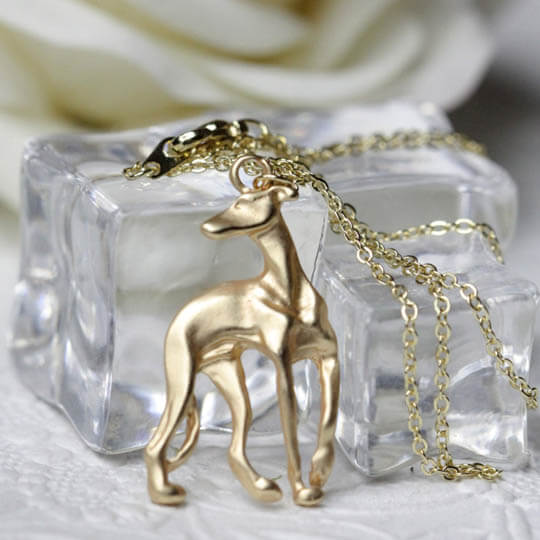
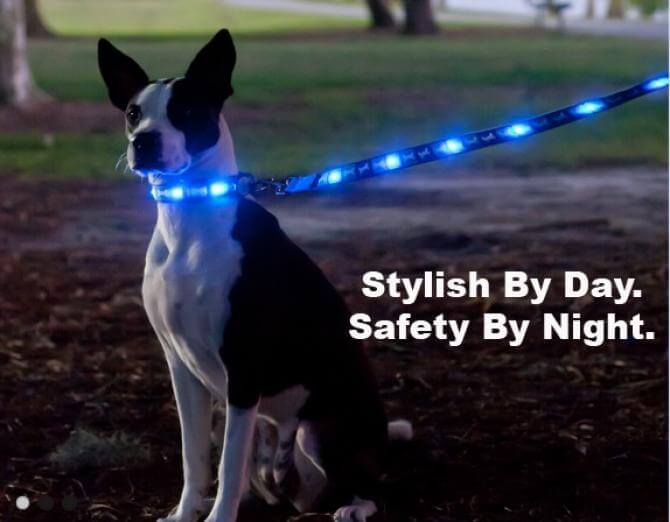
HOW TO MAKE
DIY LED DOG COLLAR
by WWW.KIWILIGHTING.COM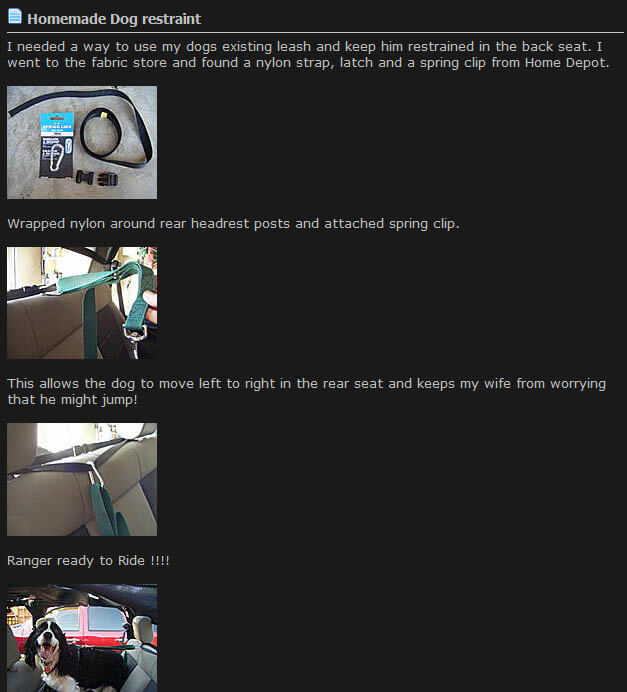
HOW TO MAKE DOG COLLAR
by WWW.COUNTRYBRO...COM
MAKING A ZIP-LINE
FOR YOUR DOG
by WWW.GOPETFRIENDLY.COM
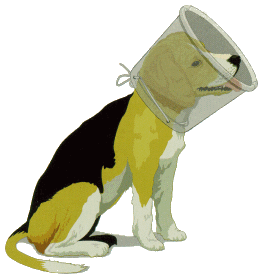
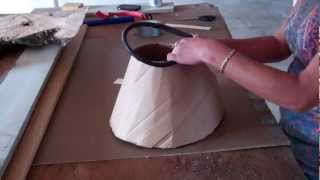
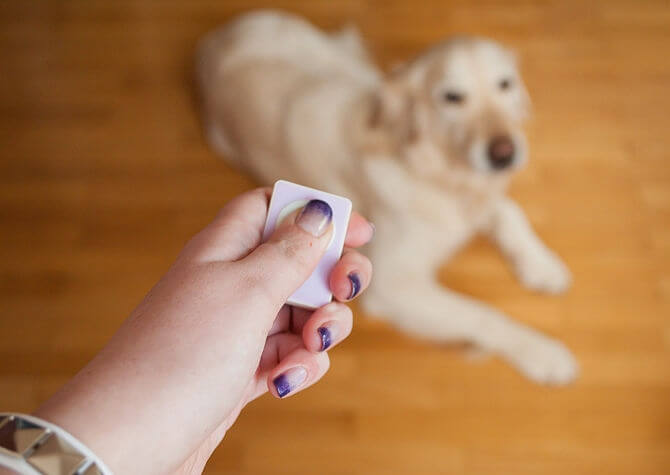
There is no doubt about it - a new puppy or older dog being brought into your home is going to need some training. An easy way to initiate a training program is to incorporate a dog whistle. Dog whistles have been around since the turn of the century. First used for training hunting dogs, then used for agility training, dog whistles are now used for even basic dog training. Many opt for the dog whistle because it works at long distances. If your dog runs, you still have your whistle, and chances are it will bring that dog right back home. There's no need to buy one, however, because with just a few simple steps you can make your own and Fido will be obeying in a matter of time.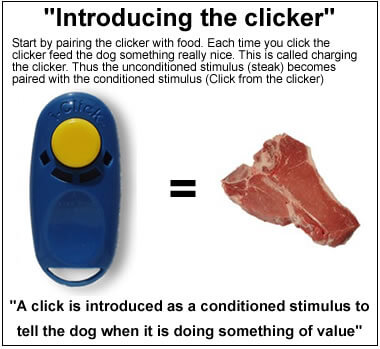
INSTRUCTIONS
1. Cut the willow tree branch into an 8- to 10-inch section. You do not want it too short or too long as this will make pitch more susceptible to human ears.
2. Cut the width of the branch no wider than your thumb. Anything fatter and your whistle will not have a good, high pitch and it could make the whistle uncomfortable in your mouth.
3. To form your mouthpiece, slice one end of the branch at an angle.
4. Cut off that pointy and sharp part - you won't want this in your mouth.
5. Place your knife perpendicular to the mouth part to pierce a hole.
6. Using the knife, cut the other side of the hole at a small angle.
7. Keep this hole small. You can make it bigger if you need to, but you cannot add to it if you take too much away.
8. Cut the branch about 6 inches from the end of the mouthpiece.
9. Cut a circle around the inside perimeter of the branch. The goal is to hollow out the inside of the branch.
10. Using the knife blade, insert it into the center and pull out the inside of the branch. This will seem like you are pulling out a cork.
11. Carve a trench in the top of your whistle. Start small. If you want a deeper sounding whistle, make the trench deep. Higher pitched whistles will have a shallow trench.
12. Mark a small notch below the mouthpiece but before the trench.
13. Wet the newly made dog whistle to remove any rough pieces. Feel free to sand any rough edges.
14. Blow. Your whistle is ready to be used. Make any modifications as needed!
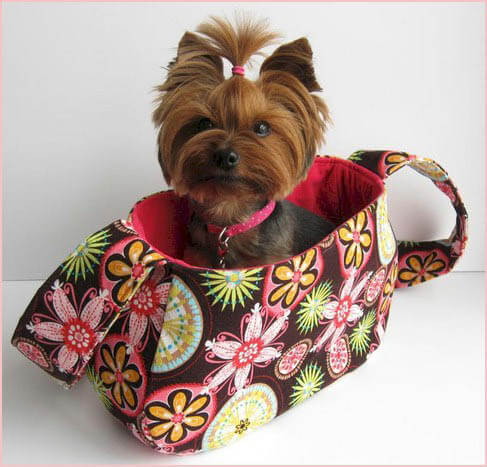
Going on a trip? Plan on taking along the pups? Of course you are. Check out these awesome DIY projects for easy and practical ways to travel with your fuzz butt.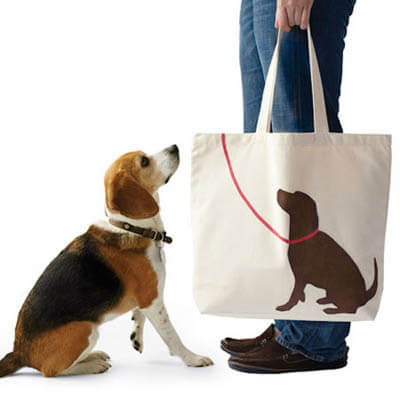
Silhouette Tote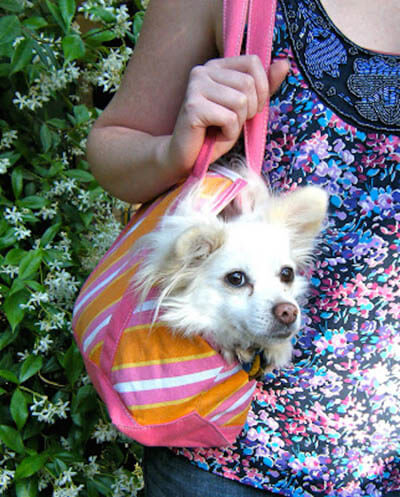
Upcycled Tote
Doggy Bjorn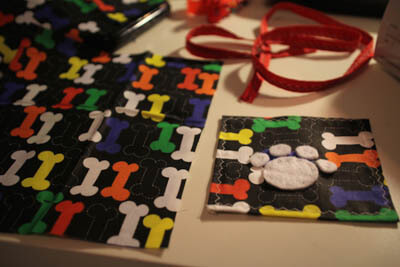
Travel Treat Bag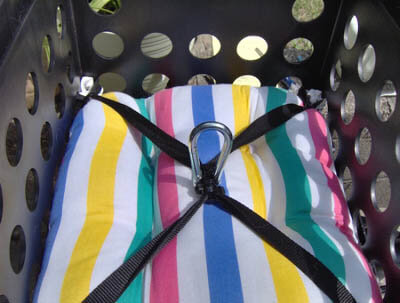
Dog Bike Carrier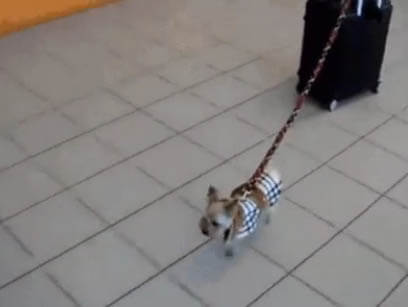
Dog Sling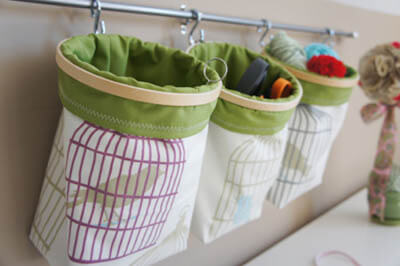
Fabric Basket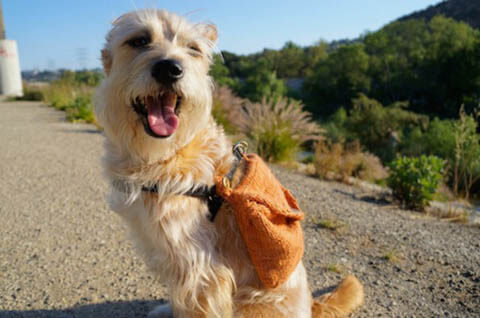
Knitted Backpack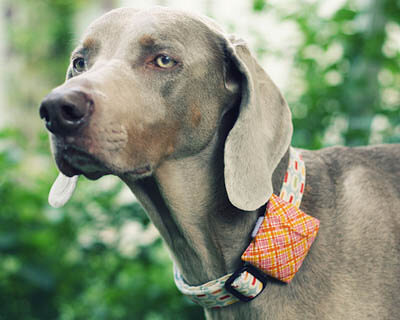
Doggy Wallet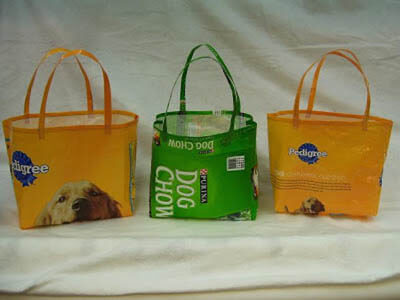
Recycled Tote
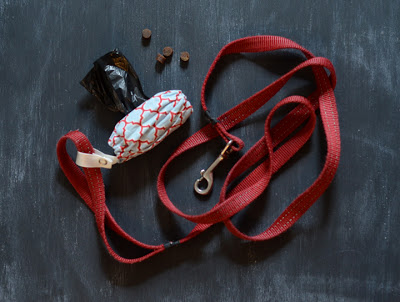
All hardware and tools are available at hardware stores. Parchment paper is available at grocery stores. Biodegradable waste bags are available at pet stores.
Required Materials
Plastic shopping bags
Scissors
Parchment paper
Iron
Metal ruler
Pinking shears
Size "0" grommet and grommet setter
1/2-inch loose-leaf ring
Swivel-eye snap hook
Biodegradable dog-waste bag
Steps
Cut a plastic bag or several plastic bags into eight 5-by-7-inch pieces.
Stack four of the cut plastic pieces and place between two pieces of parchment paper. Make sure all layers of plastic are flat, with edges aligned. With an iron set on the wool/silk setting, iron the stack, fusing the plastic together within the parchment. Repeat with the other four plastic pieces. You may need to let the piece cool and iron again a few times to fuse completely.
Cut out an applique - a shape, a letter, or a silhouette from a plastic bag of a different color for the front of the pouch. Place the shape on the fused plastic piece that will be the front of your bag. Place a piece of parchment paper over the whole thing and press with the iron to fuse.
Trim both pieces down to 4 by 6 inches. Layer the pieces on top of each other on a piece of parchment paper. Put a metal ruler along one long edge, leaving 1/8 inch of the edge exposed. Place a piece of parchment on top and iron to create a seam along that edge, taking care not to iron the rest of the bag together. Repeat for the other long edge and the bottom of the bag.
Use pinking shears to cut the top of the bag, creating a decorative edge. Add a grommet to the top corner and attach a snap hook with a loose-leaf ring. Fill with biodegradable dog-waste bags.
FREE SEWING TUTORIAL
DOG WASTE BAGS
by WWW.DESIGN-FIXATION.COM
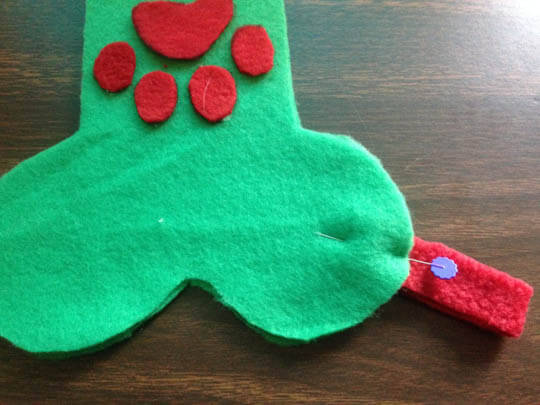
Estrus cycles can be stressful on both you and your dog. At the beginning of the estrus cycle, your dog will experience a bloody discharge, but homemade dog diapers can help minimize the mess.
Modify a Disposable Diaper!
Dog diapers are commercially available, but can put a sizable dent in your wallet, despite their value in reducing the fallout of a messy heat cycle. Consider modifying a baby diaper or toddler pull-up diaper to meet your dog's needs. Put the diaper on your dog before cutting a hole for her tail. This will reduce the likelihood that you might get it wrong, and have to discard the first diaper. Cut a small hole through which you can gently pull your dog's tail. Fasten the diaper as you would if you were putting it on a baby, making sure not to make the diaper too tight or too loose.
Adapt Cloth Alternatives
Consider creating a reusable diaper. You can create this from an old shirt or towel, but you won't get the absorption you would from a disposable diaper. Cut the tail hole as you would with the disposable diaper option. You will need to check your dog frequently, or consider adding a panty liner or mini or maxi pad to the diaper, which can be changed when necessary. Toddler or children's underwear can be substituted for a homemade diaper. The elastic waist will avoid the need to use tape or pins, which could become unfastened and harm your dog.
Understand Estrus
The canine estrus cycle is a naturally occurring brief period of time, spanning approximately 18 days, during which a female dog ovulates and is receptive to being impregnated by a male dog. Similar to that of human menstruation, the female dog will bleed during the first phase of the estrus period. Once your dog becomes receptive to being impregnated, the bleeding will taper to a straw-colored discharge. Female dogs enter their heat cycle at approximately 6 months to 24 months of age, earliest for small breed dogs, and later for large breeds. In addition to the presence of a discharge, hormonal alterations can cause changes in your dog's behavior, such as restlessness, frequent urination and tension in her rear legs.
Avoid Estrus
Consult with your dog's veterinarian to learn about the benefits of spaying, which will stop your dog's estrus cycle. Spaying your dog before her first estrus cycle can help avoid unwanted pregnancy and reduce canine cancers, such as uterine, ovarian and mammary cancers. Additionally, spaying and neutering is the best method to avoid contributing to the overpopulation of unwanted and homeless dogs.
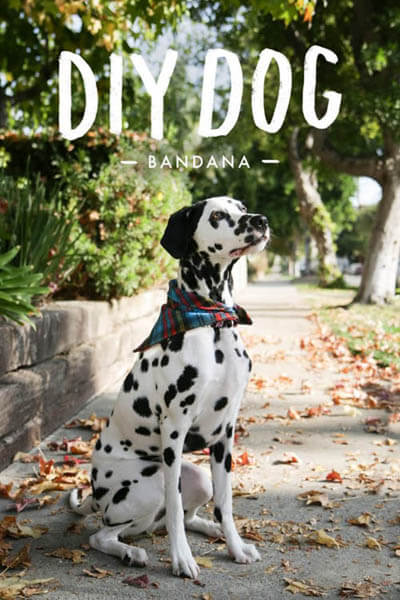
You will need:
Fabric
Measuring tape
Fabric marker
Scissors
Pins
Sewing needle
Sewing machine
Thread
INSTRUCTIONS
STEP 1: Lay out your fabric flat and from one of the corners measure 15 1/2 inches in both directions. Mark it with your fabric marker.
STEP 2: From the corner you measured, fold your fabric over at your marks to form a double layered triangle and pin in place.
STEP 3: Now cut out your triangle of fabric.
STEP 4: At this point make sure your fabric has the right sides facing each other. My fabric was the same on both sides. Re-pin your fabric so that the needles go the other direction. This will let you sew right over them.
STEP 5: Using a sewing machine, sew about a 1/4″ seam on the two open ends leaving about a 2″ opening so you can turn it inside out. I found it was better to sew all three corners closed and leave the opening a few inches from a corner.
STEP 6: Turn your fabric right side out.
STEP 7: Sew all the way around the bandana again to create a nice finished edged look.
STEP 8: Fold the corners over one another and sew a button on by hand to hold them together. I have done a button hole before but then never ended up using it. It's easier just to slide it on your pup so this time the button just holds the bandana together and adds a little bit of cuteness. This size fits my dog perfectly. His neck is 13 1/2 inches. You can adjust the measurements based on the size of your dog.
CHECK THE REVERSIBLE
DIY DOG BANDANA
INSTRUCTIONS by
WWW.GLEEFULTHINGS.COM
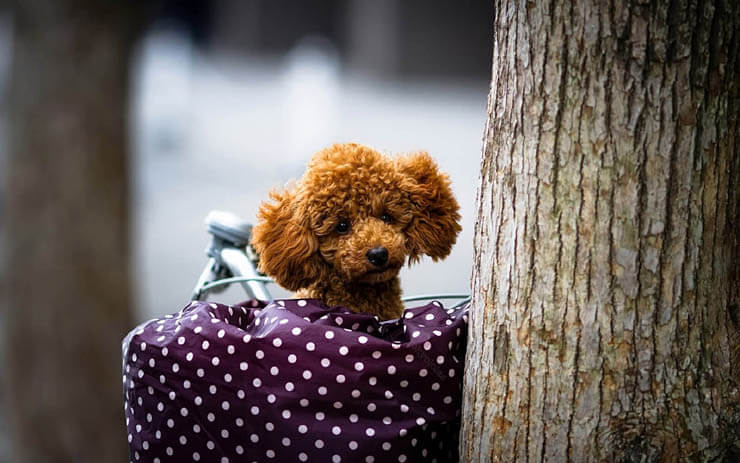
DIY a whelping box for your furball! There are many materials that you can use to make a box. Here are the steps on how you should do it:
Step 1
Measure and cut all the lengths that you need. On one of the sides, cut out an entrance- the size of this will depend on the breed of the mother. You will need to estimate how low does it need to be for her to easily get in and out.
Step 2
If you are using plastic, use the 90-degree L-Shape trim to glue the sides together. Glue along the inside of the trim and attach one side to each length of the trim. If you are using wood, nail the sides together.
Step 3
Attach the base, you could glue the trim on the inside or the outside of the box, again, if you are using wood, just nail the sides to base.
Step 4
Attach the rail, if using plastic, glue one side of the plastic trim to the side of the box around 4 inches from the base. If using wood, glue the railing to the sides of the box around 4 inches from the base.
HOW TO MAKE DIY HOMEMADE WHELPING BOX - VIDEO GUIDE
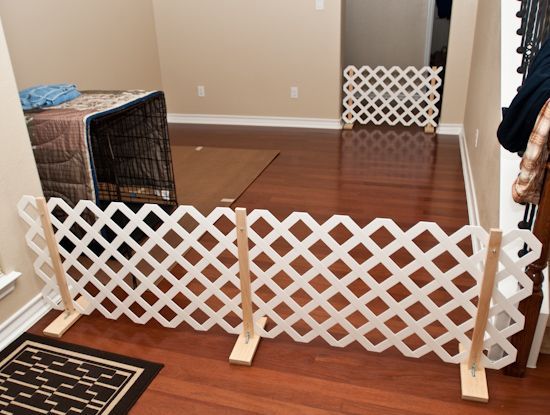
With these do-it-yourself creations, you will be able to build a simple, attractive, and cheap dog gates. Talking about the perfect solution for restricting your pets and claiming your space at home, choose the best dog gates for you.
25 DIY HOMEMADE INDOOR DOG GATES & BARRIER IDEAS PHOTOS
at WWW.PLAYBARKRUN.COM
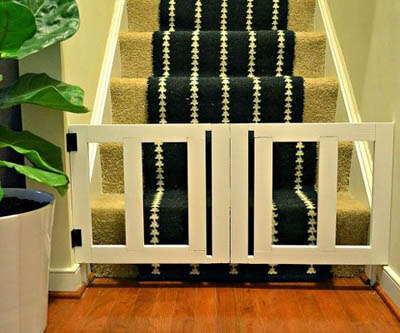
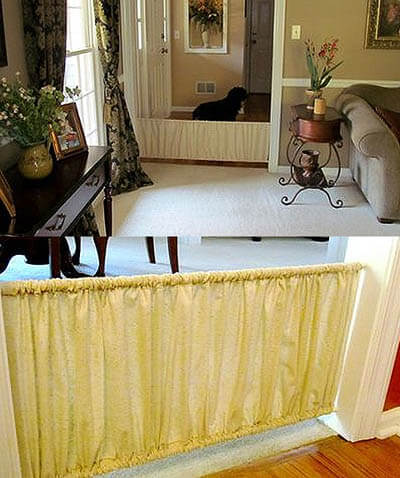
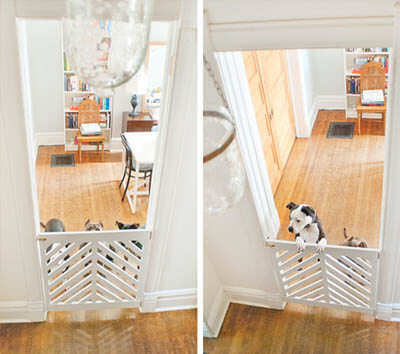
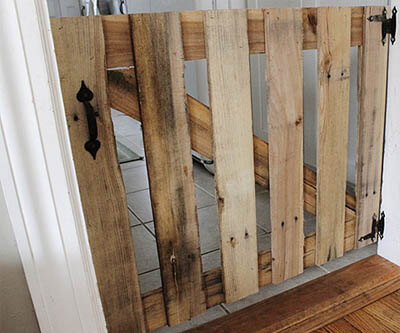
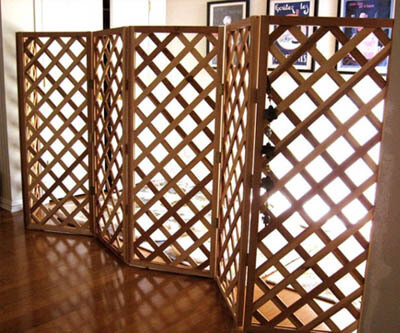
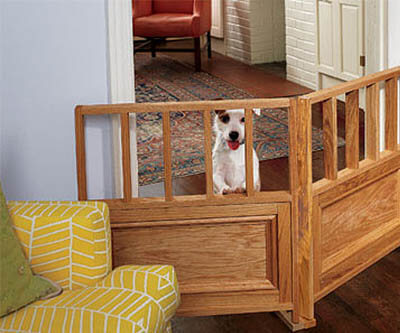
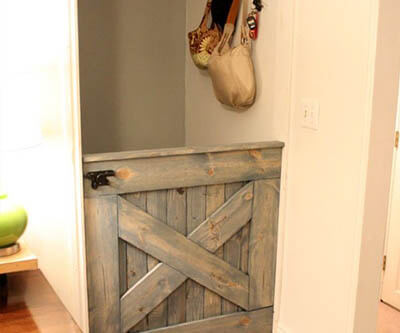
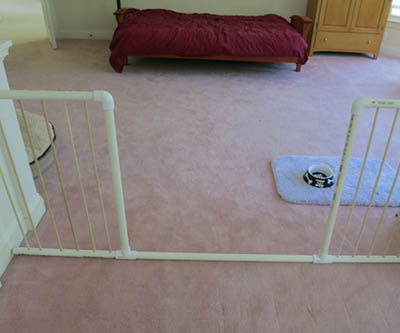
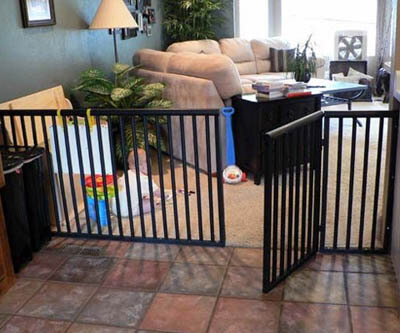
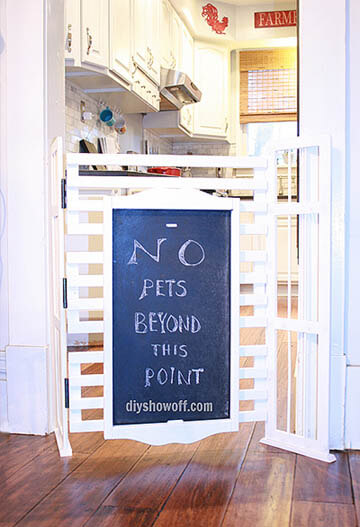
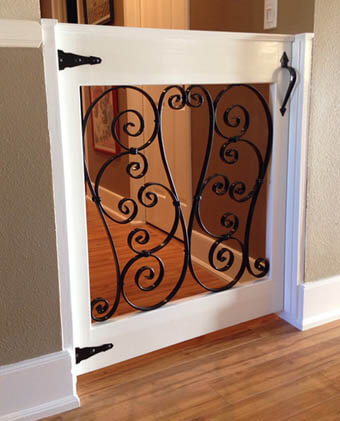
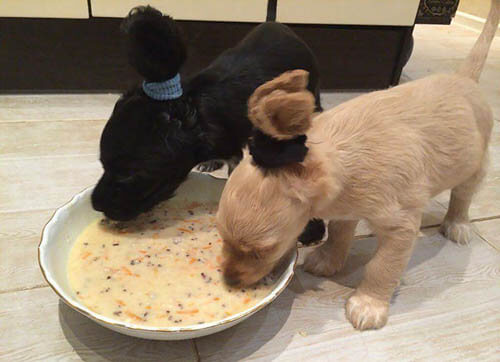
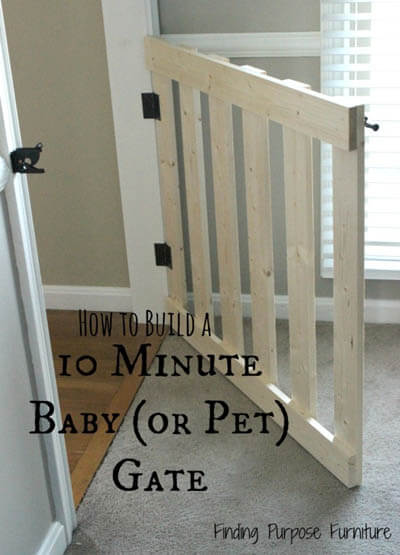
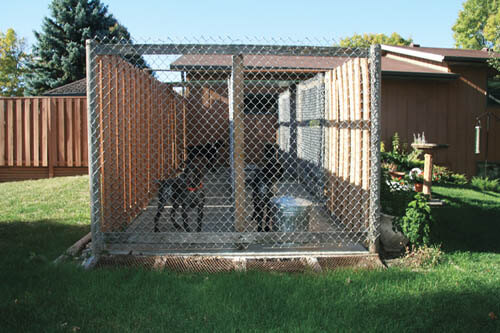
A dog's home is his castle, so there are some guidelines to consider when designing a dog kennel. Whether building or buying a new outside kennel run or re-building an old one, a gun dog owner can create a better final product by following guidelines developed through the experiences of many other canine caretakers. Deciding on a location is an important first step in building a kennel run because the place chosen will contribute directly to the design of the structure and influence the choice of materials and methods of construction in producing the final product. A kennel located far away from the owner's house will have different features from the run connected directly to an attached garage. Each location has advantages and shortcomings that need attention before design and construction begin. A kennel located several yards from a human dwelling has the advantage of separating people from dog noise & barking, dog odor - the smell of canine urine and feces and flies, attracted to dog urine and feces.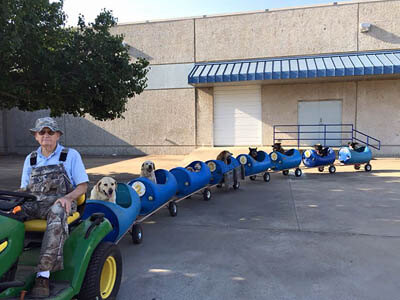
The possible disadvantages of this remote location include barking control, which is more difficult because the long distance makes a trip to the kennel for a correction time-consuming and inconvenient. Keeping the kennel clean is also a greater chore, requiring more time and effort as well as making a special water source easily available. Likewise, having lights for security or electricity for heat and/or air conditioning - yes, some dog enclosures have both, may require electrical service lines to be installed. With a remote location, the canine caretaker has a long distance to walk outside in all kinds of inclement conditions. Locating a kennel run closer to the house has the benefits of proximity in controlling nuisance barking voice commands for "quiet" usually can be given more easily and can more efficiently be enforced when the dog is in earshot. Kennel clean-up, likewise, is less trouble with water sources from the house near the run a garden hose is often in easy reach so that odor and insect issues are more quickly and effectively resolved.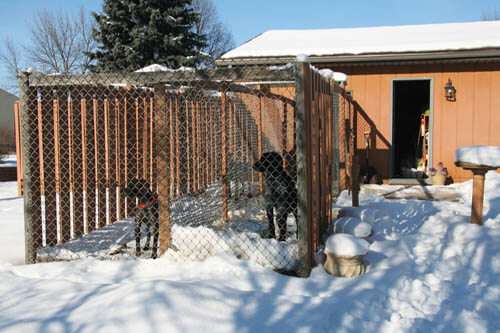
The safety and security of a dog can be better maintained when the canine in question is in easy seeing distance as well. Any outside dog run should be narrow, 48 inches long and 12 or more feet in length, as the standard dimensions. Kennel run floors should be designed with enough slope so water will run off to avoid standing puddles. My kennel floor is also tilted toward a hand-dug "dry well" 48 inches wide by 3-foot deep, positioned at the far end and filled with 3 to 4-inch diameter stone aggregate. The purpose of the dry-well is to have a place for wash water to collect and drain under the loose rocks where odor is minimal and insects cannot get at the residue of feces and urine. A dog run directly connected to an attached garage can be convienet. Long walks to maintain the dog in inclement weather are unnecessary, water and electricity are easy to access and security is easier to ensure.
CHECK THIS VIDEO MANUAL
HOW TO BUILD DOG KENNEL
at WWW.GUNDOGMAG.COM !
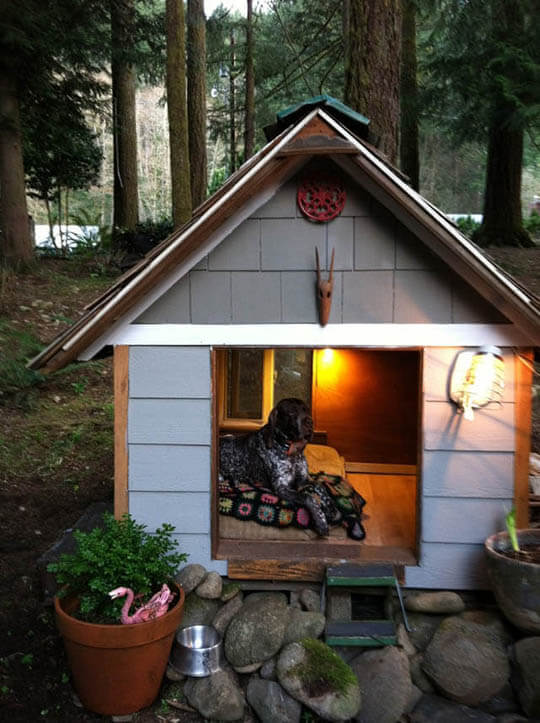
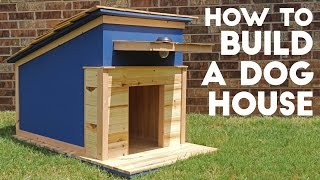
WATCH VIDEO
DOGHOUSE DOOR CONSTRUCTION PLANS
at WWW.DOITYOURSELF.COM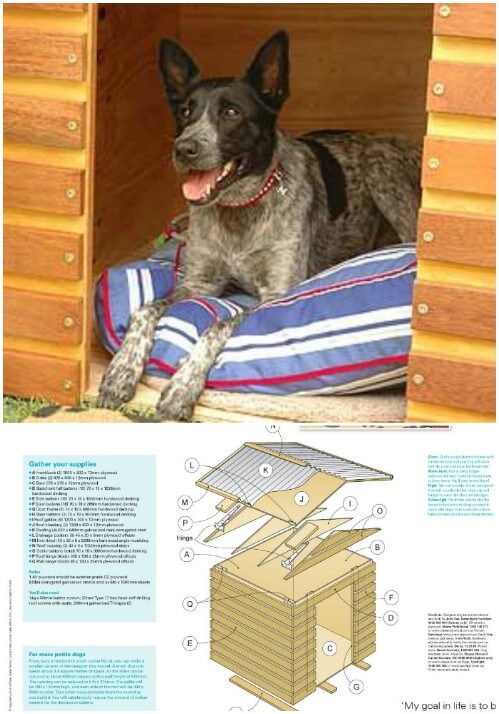
Homemade Crooked Doghouse
at WWW.ANA-WHITE.COM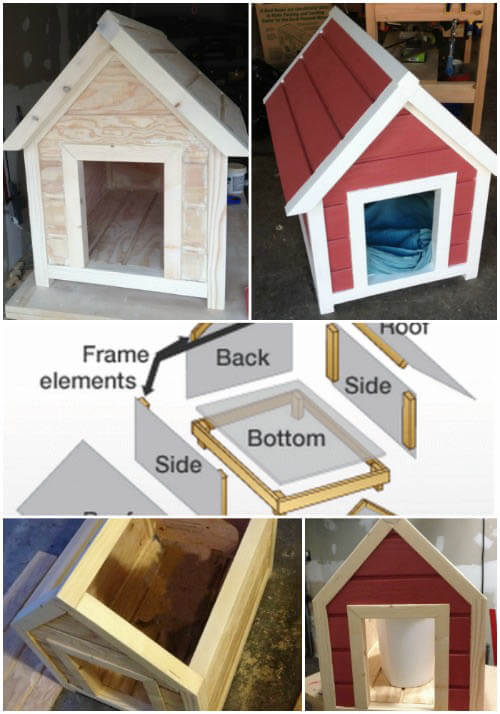
Simple Elegance Doghouse
at WWW.REMOVEAND...COM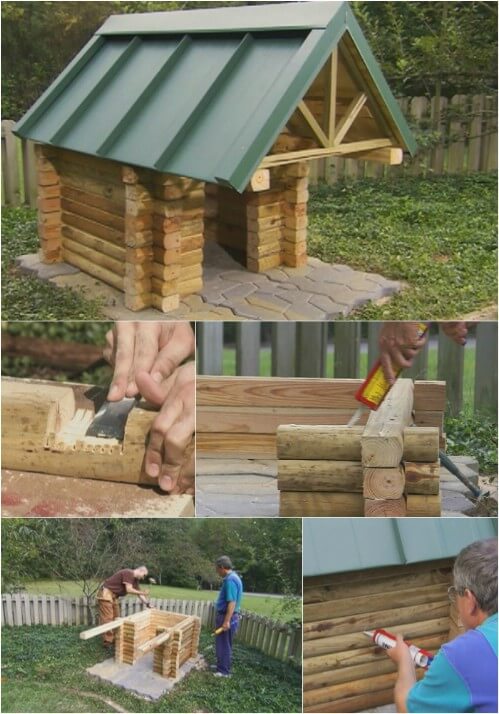
Lovely Log Cabin Doghouse
at WWW.DIYNETWORK.COM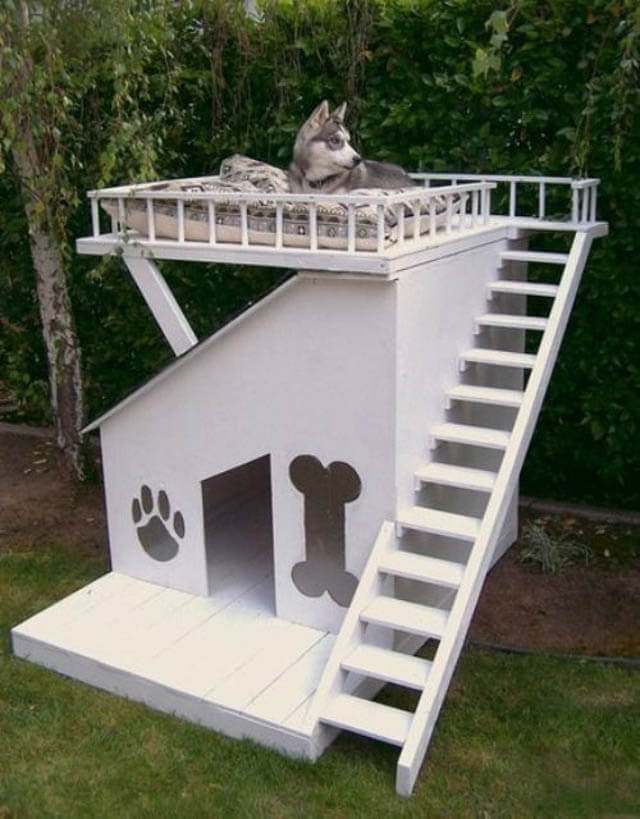
Fit For a King Doghouse
at WWW.HOMEDEPOT.COM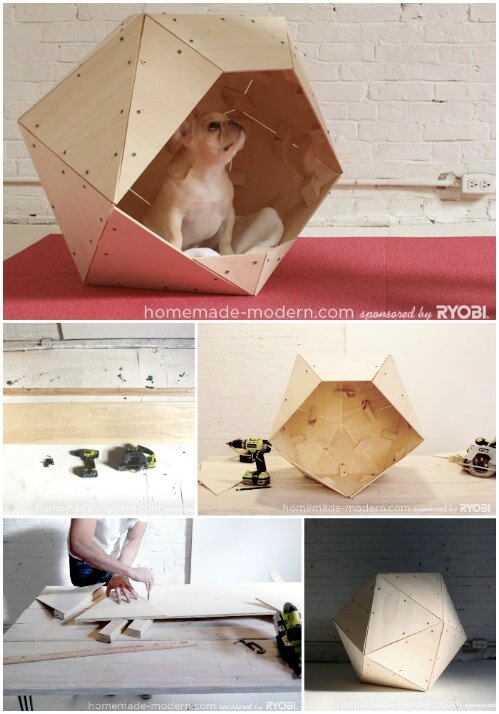
Modern Geometry Doghouse
at WWW.HOMEM...COM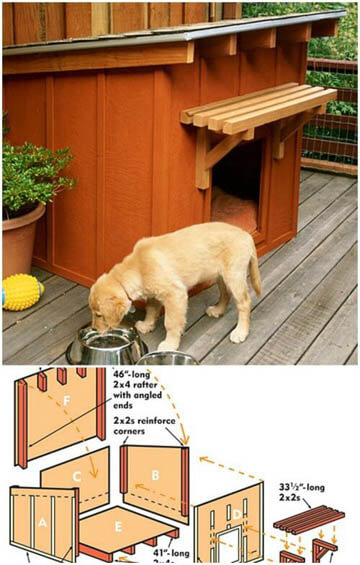
Doggie Ranch Doghouse
at WWW.SUNSET.COM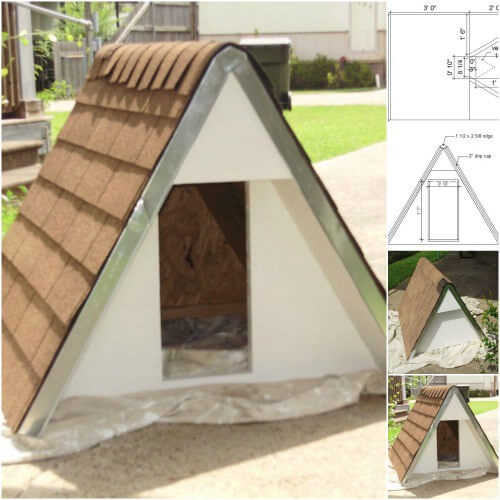
A-Frame Doghouse
at WWW.INSTRUC...COM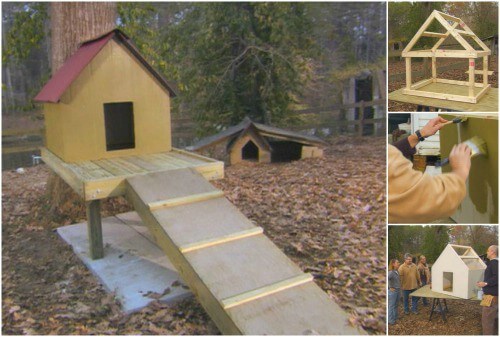
Canine Tree Doghouse
at WWW.DIYNETWORK.COM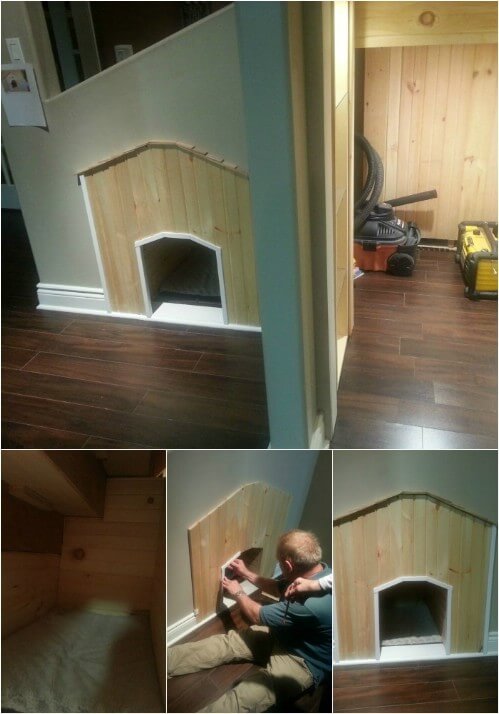
Indoor Homemade Doghouse
at WWW.REDDIT.COM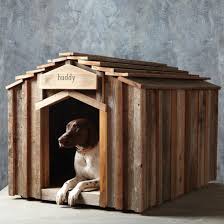
Traditional Wooden Doghouse
at WWW.ALL-AB...COM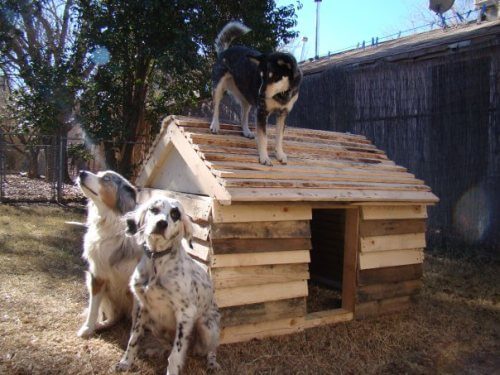
Customized Doghouse
at WWW.RONHAZELTON.COM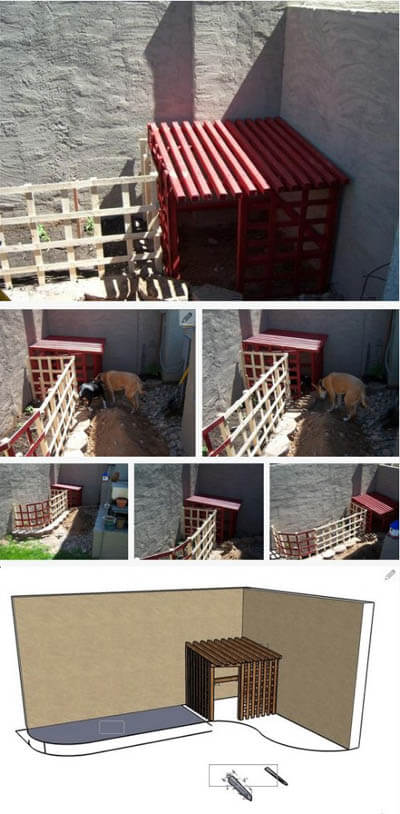
Openair Shelter Doghouse
at WWW.INSTRUCTABLES.COM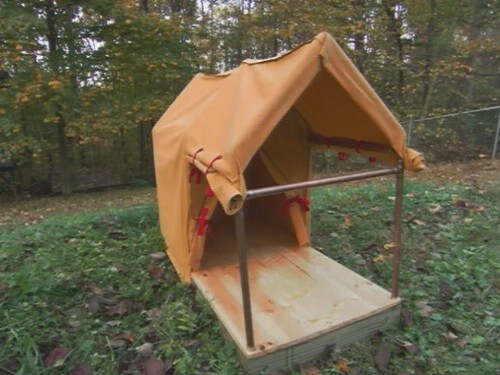
Dog Tent
at WWW.DIYNETWORK.COM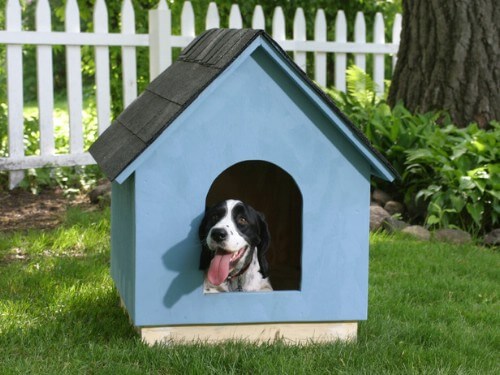
A Classic Doghouse
at WWW.DIYNETWORK.COM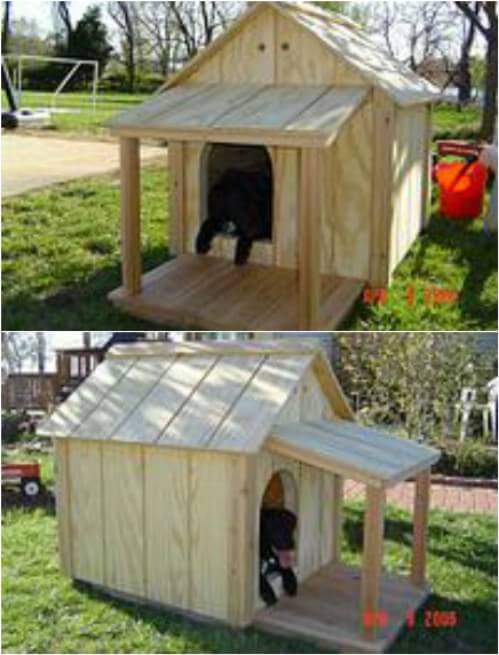
Free Doghouse Plans
at WWW.THE-DOG-SITE.COM
Over 100 Doghouse Plans I
at WWW.ISEEIDO...COM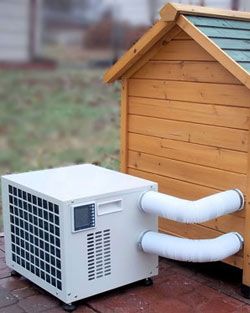
Over 100 Doghouse Plans II
at WWW.ISEEIDO...COM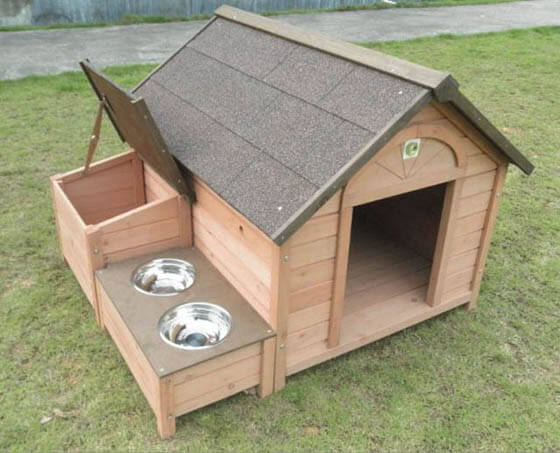
36 Homemade DIY Doghouses
at WWW.MORNINGCH...COM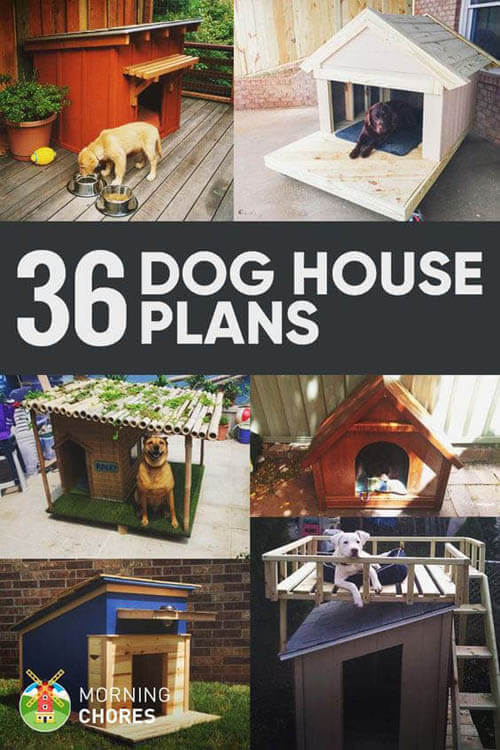
36 Homemade DIY Doghouses
at WWW.DIYCRAFTS.COM
Free Doghouses Planes
at WWW.AZWOODMAN.COM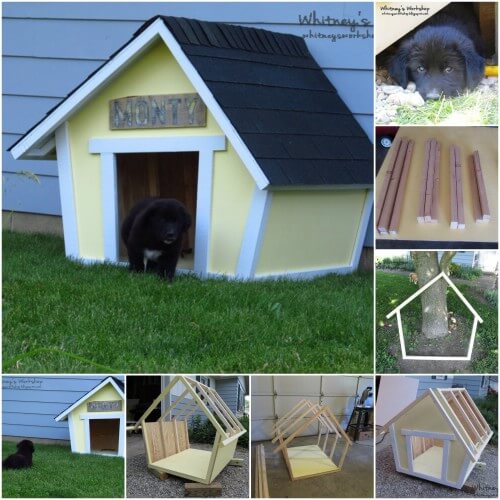
24 Homemade Doghouse Plans
at WWW.TOOLCRIB.COM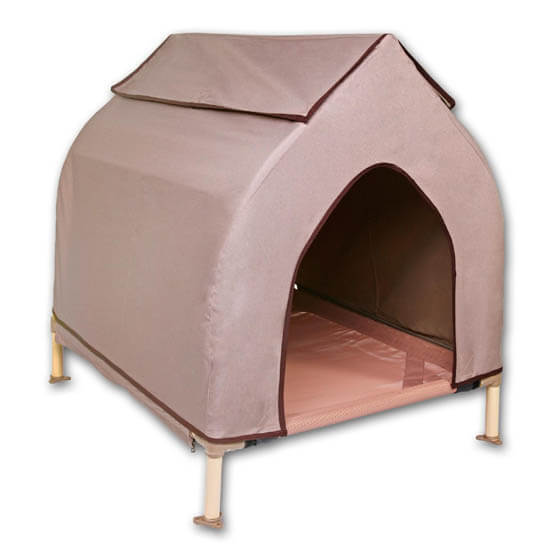
25 Homemade Doghouses
at WWW.ALL-AB...COM
17 Homemade DIY Doghouses
at WWW.FREEWW.COM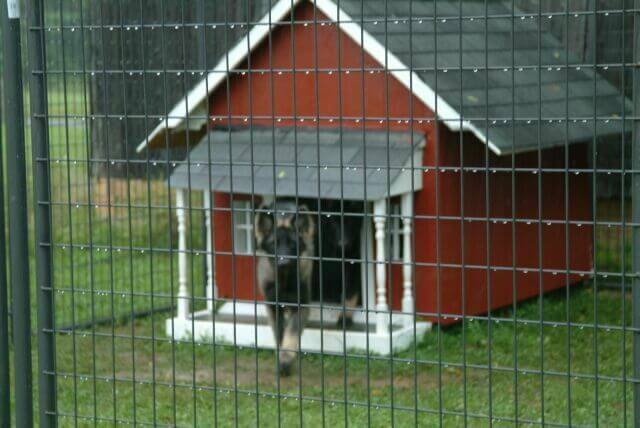
How to Build Doghouse
at WWW.RANUM.COM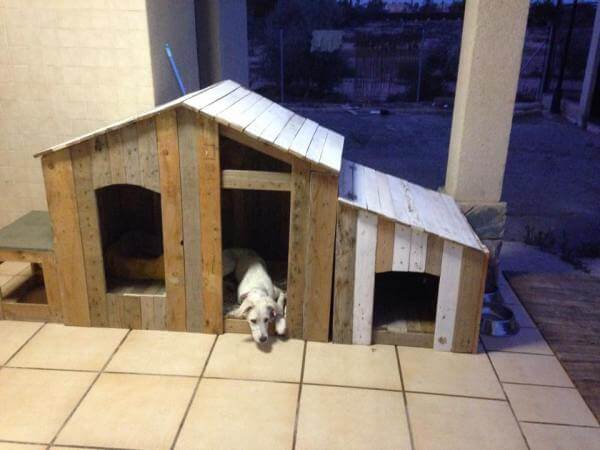
Leeswood Homemade Doghouses
at WWW.TODAYSP...COM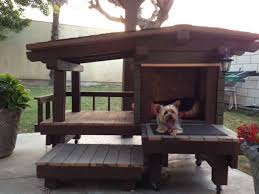
Wayne Woods Homemade Doghouses
at WWW.TODAYSPLANS.COM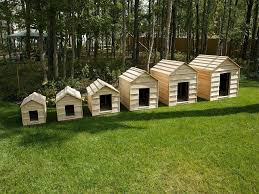
Sunset DIY Doghouses
at WWW.TODAYSPLANS.COM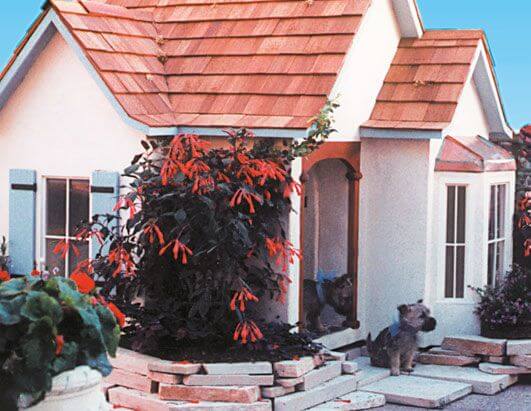
Homemade Doghouse Plans
at WWW.FLOWERPO...COM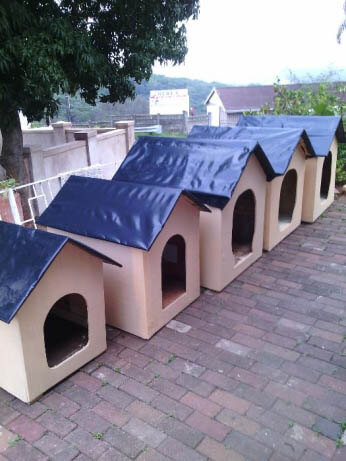
15 Homemade DIY Doghouses
at WWW.WOODWORK...COM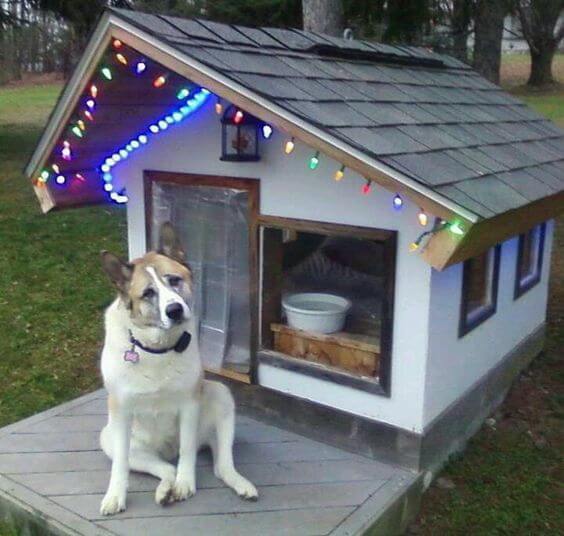
13 Homemade DIY Doghouse Plans
at WWW.THEBALANCE.COM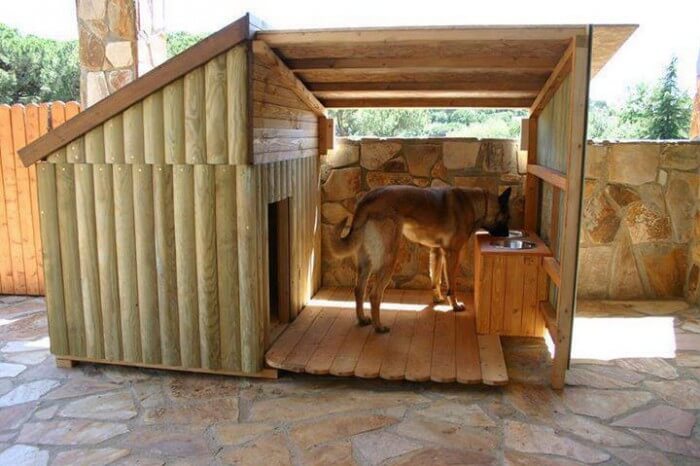
85 Homemade DIY Doghouses
at WWW.DIYCOZYHOME.COM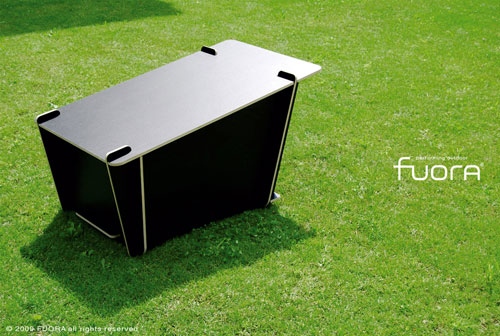
100 Homemade DIY Doghouses
at WWW.TODAYSP...NET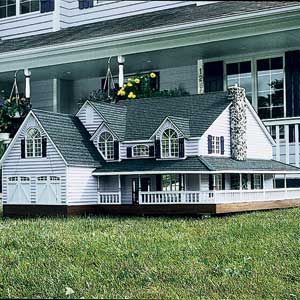
Homemade DIY Doghouse PDF
at WWW.TODAYS...NET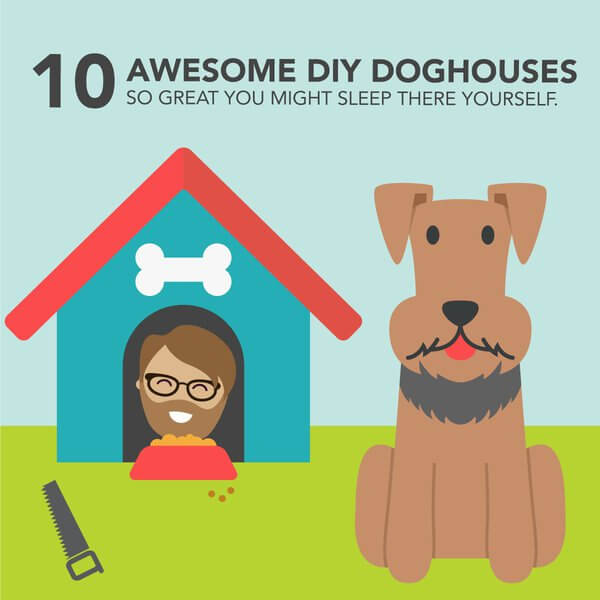
10 Homemade DIY Doghouses
at WWW.CARE.COM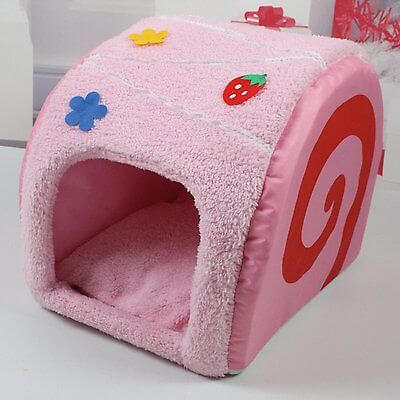
4 Homemade DIY Doghouses
at WWW.HANDYAN...COM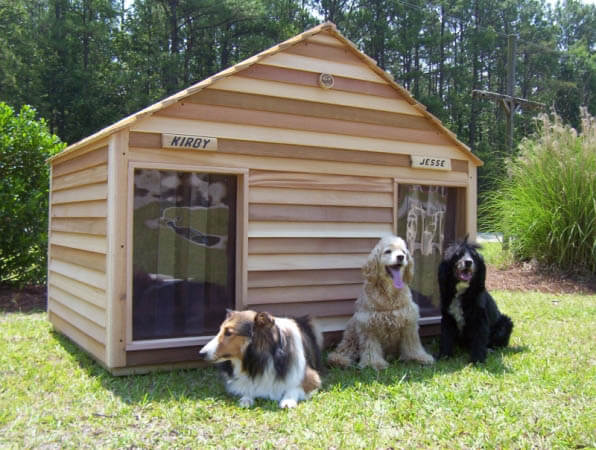
Insulated Homemade Doghouse Plans
at WWW.DIYDOGH...COM
36 Homemade DIY Doghouse Plans
at WWW.MORNING
CHORES.COM
Homemade Doghouse Plans
at WWW.SHEDLIQ....COM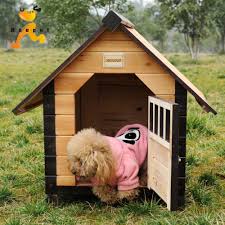
Homemade DIY Doghouse Ideas
at WWW.CONSTR...COM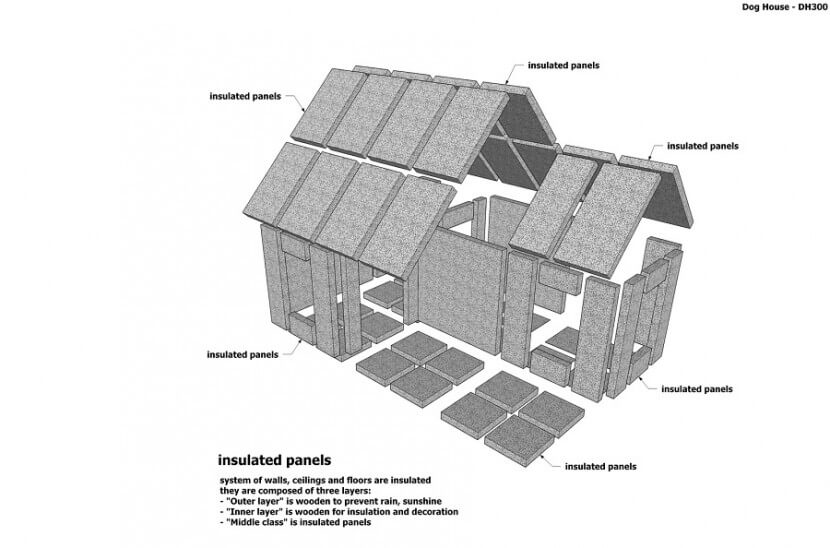
Homemade DIY Doghouse PDF
at WWW.DISCOVE...NET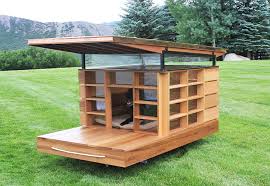
Homemade DIY Doghouse PDF
at WWW.DOGSAHOLIC.COM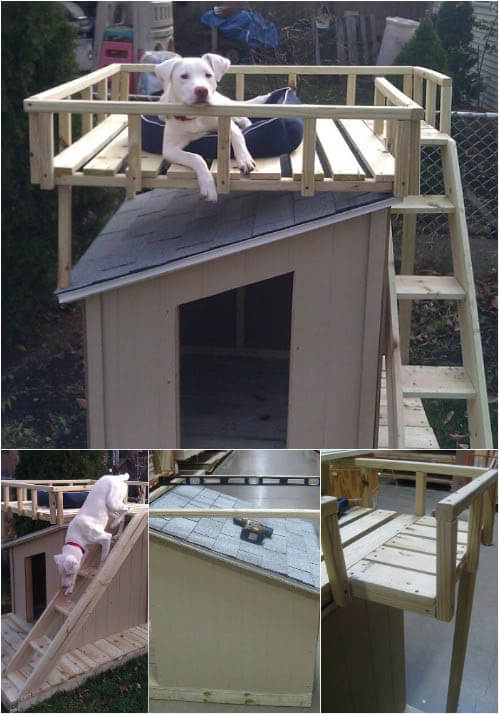
Homemade DIY Doghouse Plans
at WWW.DIYNCRAFTS.COM
Buy Online Professional
Doghouse Plans PDF Collection
at WWW.THECLASSI...COM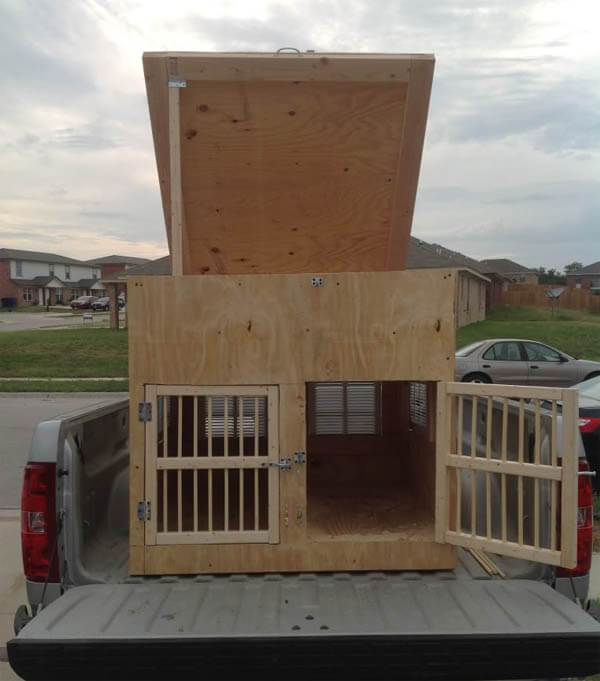
Wooden Doghouse Plans
at WWW.DUCKSOUTH.COM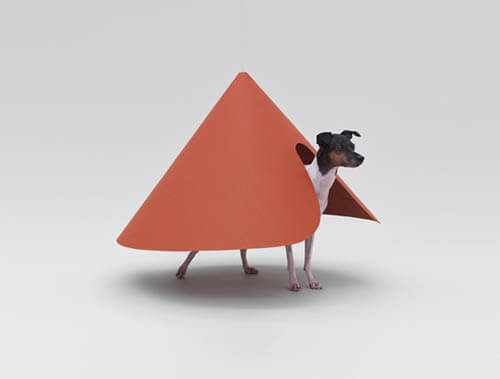
CHECK 20 AMAZING
DIY DOGHOUSE DESIGNS
at WWW.HGTV.CA !!!
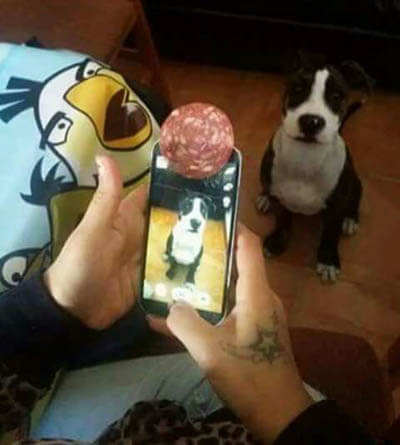
Sometimes around it gets really cold, and you wish to be sure your dog is warm. I know they are animals and can deal with it, but while I am in my warm bed, I like to know they are well taken care of too, so I consulted with some friends and looked online and found a nice solution that is rather easy to make. It seems that in August/September of 1990 in a magazine called Gun Dog, there was an article about how to create a simple dog house heater for hunting dogs. It involved using a metal gallon paint can, a porcelain light bulb fixture, a 60 watt bulb and some wire, to make a convective heating device.
INSTRUCTIONS
Go to a paint store and buy an unused 1 gallon paint can with the lid. Punch 1/4" dia holes on the lid and sides of the can. Keep the holes small enough to prevent much light from getting through yet still allow convective heat to escape. Punch a hole in the bottom about 2" in diameter. Enough room for your wire to be manageable. Mount the can keeping 4" of clearance on all sides to allow heat to circulate. You will need to run the wiring to the correct location first of course. Connect a porcelain light bulb socket inside the can, wire it up and put a bulb in the base, put the lid on. Accessories that can be included, after all it is built by guys are a dimmer switch to control heat and an indoor-outdoor thermometer to keep tabs on the temperature.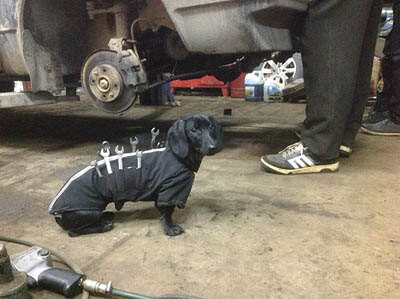
WATCH VIDEO GUIDE
HOW TO MAKE DOGHOUSE HEATER !
I quickly snapped a video using my cell phone this evening to show you what it looks like inside the dog house, so you can get an idea. The can is very hot, I cant even touch it. It has the dog house nice and toasty. I am looking forward to see how it does in the colder days ahead.
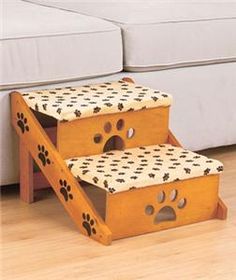
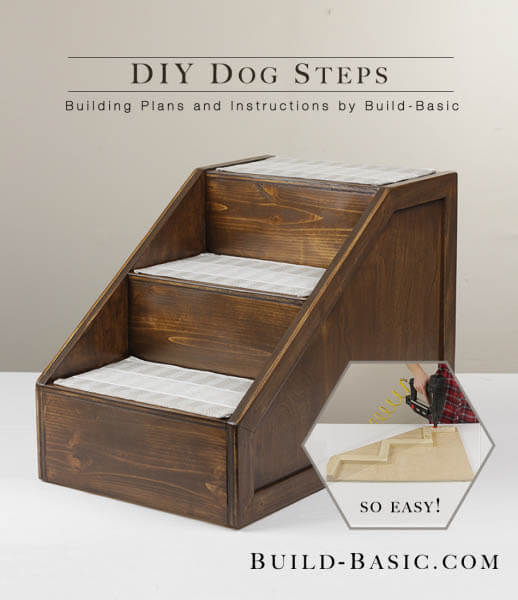
HOMEMADE DIY DOG STEPS GUIDE
by WWW.BUILD...COM
CHECK 17 FREE
DIY DOG STAIR PLANS
at WWW.PINTEREST.COM !!!
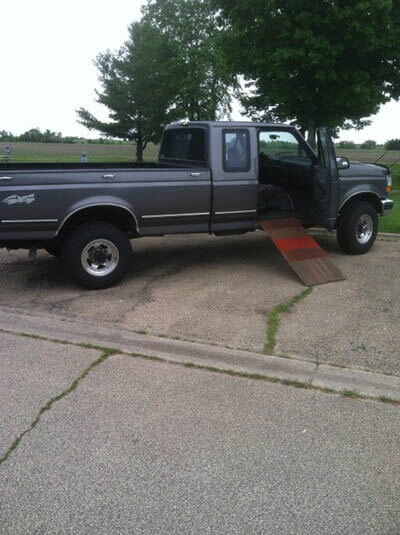
So how to make/ a dog ramp super fast and cheap? Here's how I did it in merely minutes and the good news is Hannah didn't even hesitate getting into the truck on the first try! You will only need a few supplies and a few minutes to put it together - promise!
DOG RAMP SUPPLIES
2' x 4' piece of plywood, 1" thick: we paid about $8 for this but maybe you have one at home
Carpet remnant(s) to cover one side: the ones in the photo of our ramp were from Dollar Tree with sturdy rubber backing, but thrift stores often have cheap carpet remnants you can cut to fit. I chose pieces because I could get them more taut. I worried one gigantic piece might start bulging up over time.
Staple gun: I have one, so no expense there
Stanley staples 9/16": This size is important! Don't use shorter ones which can come out and hurt your dog's paw plus they won't go through the carpet and wood anyway.
Cabinet handles (optional): For ease in carrying, you might want to screw in handles on the side, but we haven't done that as of yet.
INSTRUCTIONS
If you haven't figured it out already, simply lay the carpet down and staple like crazy. I used pieces and stapled all around all four sides of each one. They lie so flat and are strongly embedded so no worries of hurting Hannah's paws. All in all, our make your own dog ramp was a complete success and had all of the features we required and more. That said, there are a few considerations to keep in mind, so maybe you will want to enhance my original idea. Obviously, plywood is heavy and getting it in and out of the truck is not a problem for us, but could be for others. I would definitely recommend putting handles on it and putting your tailgate down to remove it, for ease and minimal strain. Also, truck sizes and heights differ, so measure a safe angle and width for your pickup. The board should lay on the floorboard of the passenger seat.
If your dog is lighter than Hannah's 80 pounds or smaller, you can get a thinner or narrower sheet of plywood. But test it in the store by putting your foot on it and pushing with all of your might. If it bows and flexes it will scare your dog, so be sure it stays stiff and is strong. Splinters! Our plywood is really smooth, but splinters are a risk. You can either install handles or put carpet on the back side, too, to minimize the risk.
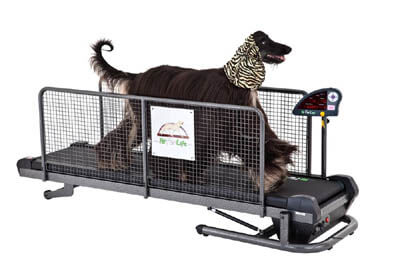
Step 1
Measure your dog. You will need to ensure the treadmill design is long enough and wide enough for your dog to use comfortably.
Step 2
Design the frame. Frames can be constructed out of wood or metal and can be made with side rails. The dog can be clipped to these rails to help keep him from falling off. Notches can be added to adjust the incline of the equipment, making the workout more challenging as the dog's performance improves. Rollers can be attached to the frame via axle and ball bearing, or using independent casings.
Step 3
Determine what sort of roller system you'd like to use. Unless you have a very small dog, the width should be between 15 and 18 inches. Large rollers will be positioned at each end of the frame with slightly smaller rollers along the length. A simple roller can be made by filling a piece of two-inch PVC pipe with foam and running an axle thorough the center. The rollers are then covered with polyurethane plastic; forming a base which is positioned and secured within the frame.
Step 4
Find a belt. Belts can be salvaged from old gym equipment, taking them straight from human powered machines. You will need a piece of approximately 10 feet long, depending on the size of your dog. To simplify the process a gravity roller section can be purchased from a conveyer company or occasionally found on EBay or Craigslist. Alternatively, you could incorporate carpet into your design, rather than a standard conveyor belt.
Step 5
Include a slip-out roller. When designing your dog treadmill, it will need to include a system for removing one or more of your rollers, in order to properly incorporate the belt. The belt will need to be fairly tight to work correctly. By slipping several of the rollers out one side, and sliding the belt into position, the belt can be pulled taut when the rollers are replaced.
WATCH VIDEO GUIDE:
HOW TO BUILD DOG TREADMILL
CHECK HOW TO BUILD
DIY DOG TREADMILL
at WWW.MAKE-AND-BUILD-DOG-STUFF.COM

Please, Note:
ALL THE INFORMATION PROVIDED IS FOR INFORMATIONAL PURPOSES ONLY !!!
YOU MAY USE ONLY AT YOUR OWN RISK, ANY OF THIS SECTION HOMEMADE RECIPES
When I adopted my dog a few years ago, I kept feeding her the same commercial brand of dog food she had eaten at the kennel. A few months after, she started to develop heat rashes and dry skin. In a desperate attempt to get my poor girl to stop scratching, I started reading up on dog food ingredients and learned that most commercial dog food contains meat byproducts, fillers, and general junk I didn't want my dog eating.
After that, I switched to organic dog food and treats, but that started to get very expensive. For example, the treats cost about $10 for just a small bag.
To save some money, I started looking into different homemade dog food and treat recipes and found that I could save money by making my dog's meals and snacks. In addition to the cost savings, the food I make for my dog is much healthier than commercial dog food. Most homemade dog treats keep for a week or more, and you can freeze homemade dog food, so you always have some cheap, healthy alternatives on hand for your pup.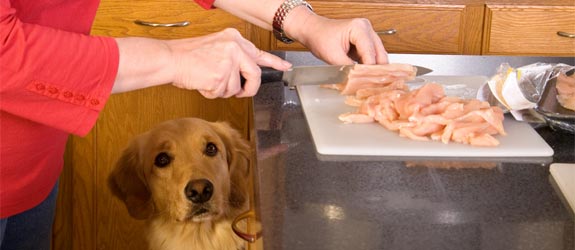
Below are my favorite homemade organic dog food and treat recipes that you can try at home.
Homemade dog food is healthier than the mass produced dog food brands, and significantly cheaper than most of the organic dog food brands. Making your own dog food does take a bit of time, but you can make extra and store it in the freezer.
Feeding your dog homemade dog food can reduce the risk of skin allergies, boost their immune system, improve their digestive system, and give them renewed energy.
These treats have a variety of fruits, vegetables, whole grains, and meat your dog will love. By purchasing organic ingredients, and sticking to low sugar and low fat options, you can keep your dog healthy as well.
While most dogs can handle a variety of different treats fed in small doses, some might get an upset stomach if you switch foods too quickly or too often. Before you start making your own homemade dog food, talk to your vet and ask if he or she has any special ingredient suggestions, as some breeds may be more prone to food allergies than others. After getting your vet's approval, switch your dog's food over gradually, slowing mixing in a homemade dish with your regular food over the course of several days.
Peanut Butter Cookies
Dogs love peanut butter, and these cookies are a great way to sneak some fish oil into your dog's diet. Fish oil improves your dog's coat, making it shiny, soft, and healthier.
Look for organic peanut butter at your grocery store. Many commercial brands of peanut butter have unhealthy hydrogenated oils and additives. Better yet, make your own peanut butter using raw peanuts and peanut oil, and processing the mixture in your food processor.
Ingredients
2 cups of flour
(white or wheat, if your pup has no wheat allergies)
1 cup of rolled oats
1/3 cup of smooth peanut butter
1 tablespoon of honey
1/2 tablespoon of fish oil
1 1/2 cups of water
Directions
Preheat the oven to 350 degrees Fahrenheit.
Mix the flour and oats together in a large mixing bowl. Pour in one cup of water and blend until smooth. Add in the peanut butter, honey, and fish oil and mix until all the ingredients are well blended.
Slowly add the water until the mixture has a thick and doughy consistency.
Lightly flour a cooking surface. Roll the dough onto the cooking surface to create a 1/4 inch thick sheet.
Use a cookie cutter to create shapes. Place the cookies onto a baking sheet and bake for 40 minutes.
Allow to cool completely before feeding.
Pro Tip: If the dough is too sticky to roll, slowly pad more flour onto the dough ball.
Chicken Jerky
I give my pup these chicken jerky treats as an alternative to the store-bought raw hides. The jerky is tough and chewy, so it keeps my dog occupied for a while, and the chicken has a good amount of protein, which is good for a dog's muscle structure.
Ingredients
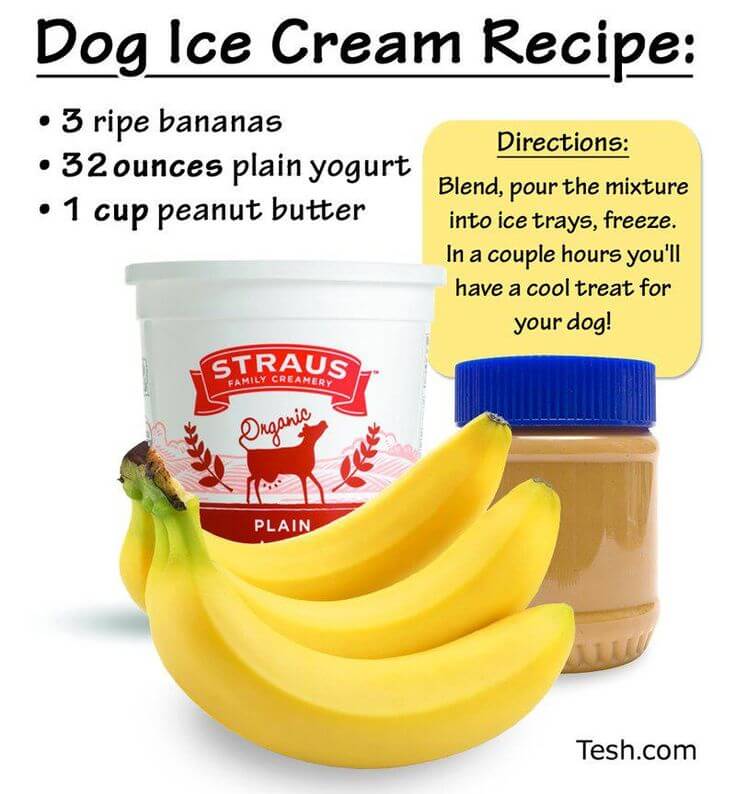
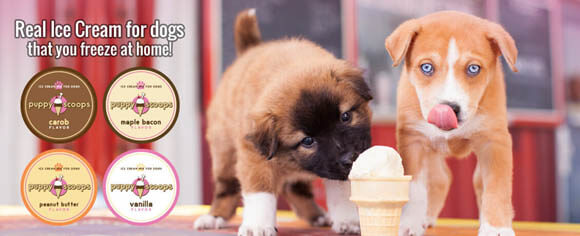
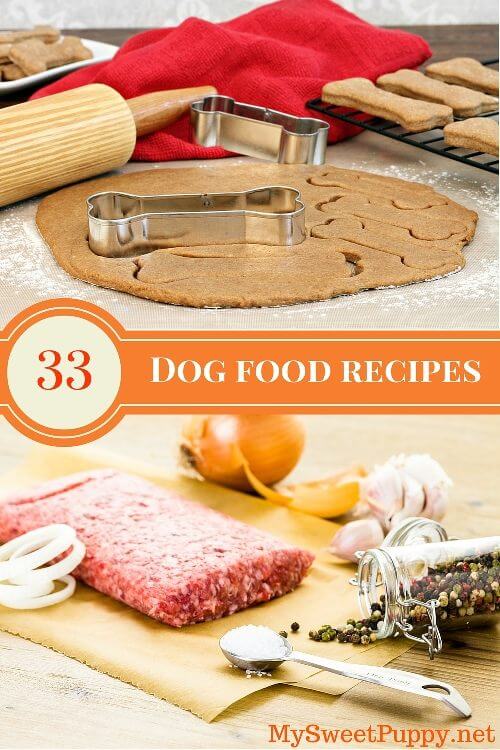
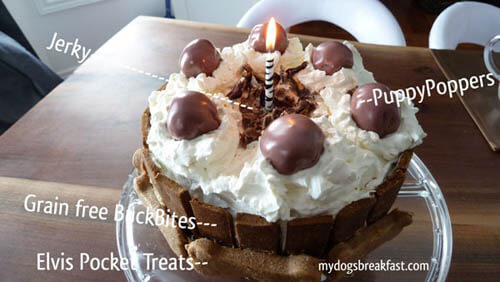
FREE DOG BIRTHDAY THREATS:
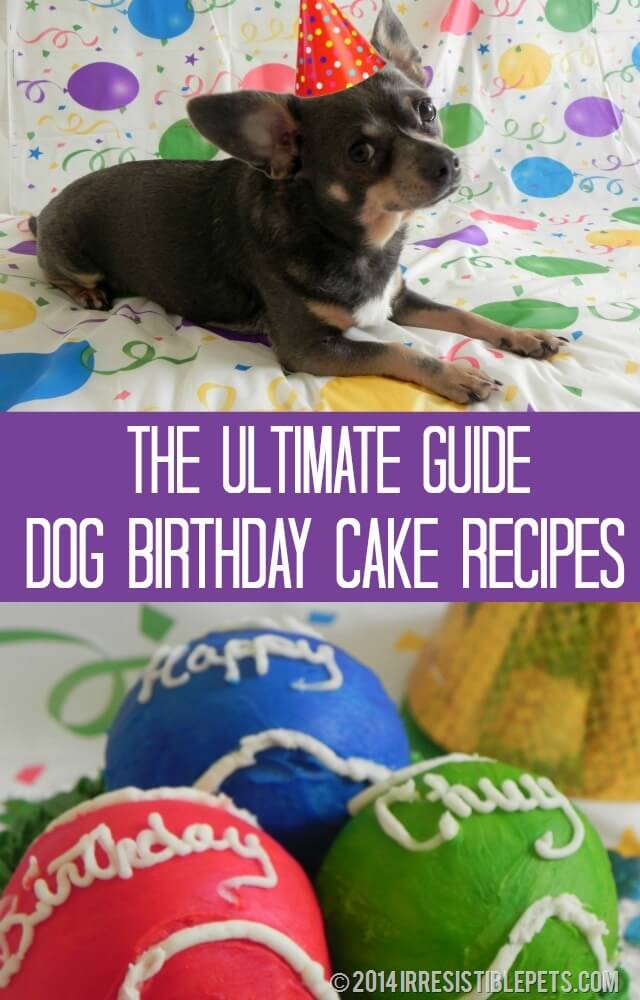
The Ultimate Guide to Dog Birthday Cake Recipes
by WWW.IRRESTIBLEPETS.NET
How To Make a Dog Birthday Cake
Banana Carob Oat Cake with Peanut Butter Frosting
by Joanne Meyer
Healthy Dog Birthday Cake
from The Rodimels
Dog Birthday Cake
from Keeping My Cents
Peanut Butter Carrot Doggy Cake
from the Brown Eyed Baker
Mini Berry-Almond Cake
from Pretty Fluffy
How To Make a No-Bake Cake For Your Dog
by Created by Diane
Doggie Birthday Cake
by Food.com
Grain Free Peanut Butter Apple Dog Cake
by A Spoonful of Sugar Free
Carrot Cake for Dogs
by The Daily Puppy
Doggie Birthday Pupcakes
by Brownie Bites
Delicious Doggie Pupcakes
by First Home Love Life
Edible Frosting for Dogs
by The Daily Puppy
from Party 4 Paws
Edible Frosting Ideas
from The Nest
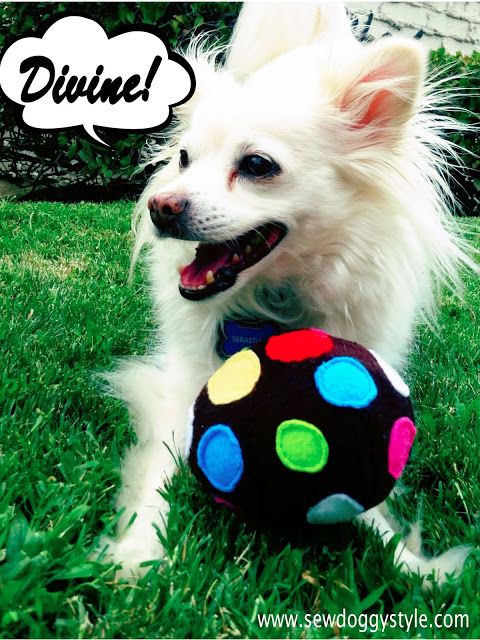
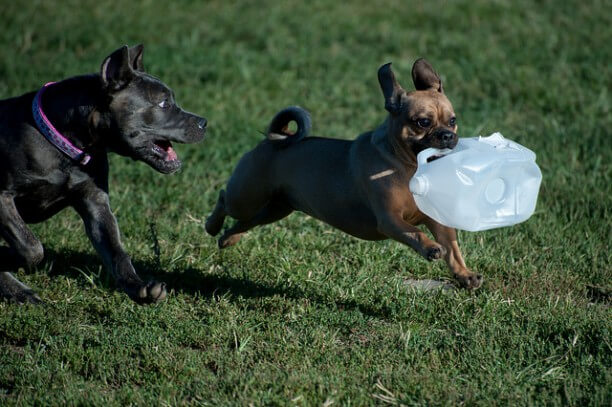
As you are no doubt well aware, purchasing dog toys can be expensive, and many of them don't last very long. You can create homemade versions that cost you little or no money, often using recycled items you already have around the house. Here are ten of my favorite ideas to keep your pooch busy and happy...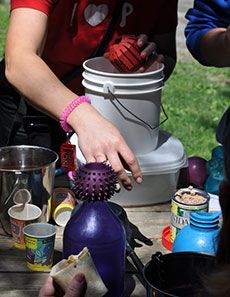
A word of caution!...
Choose materials carefully and be aware of safety.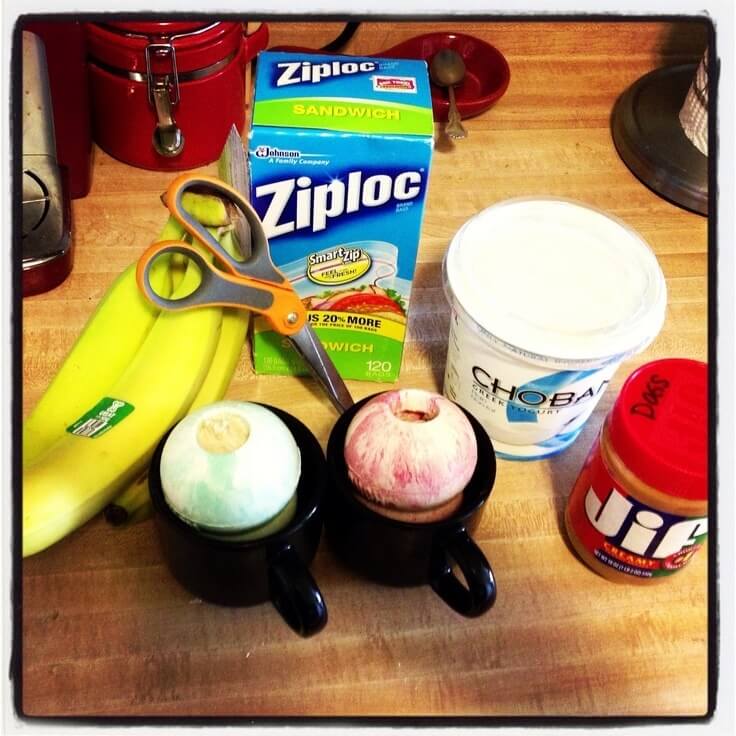
Strings can come off and get swallowed, buttons or other small items can easily be choked on. Always use common sense, and always supervise your dog with their toys.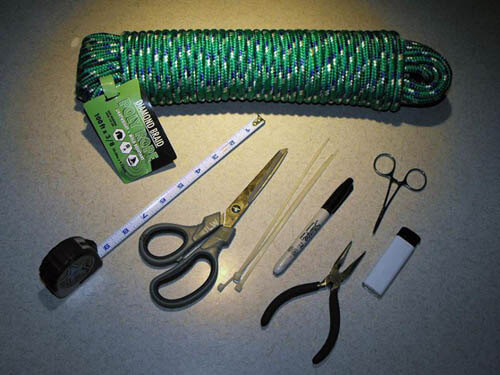
As is the case with any toy, think of your pup's safety first. Supervise your dog when they're playing with all toys and regularly inspect them for damage.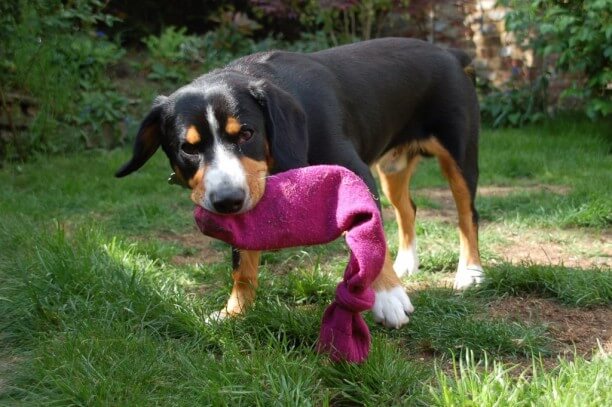
Be sure to get rid of any toys that are falling apart - you don't want your four-legged love to swallow anything harmful!
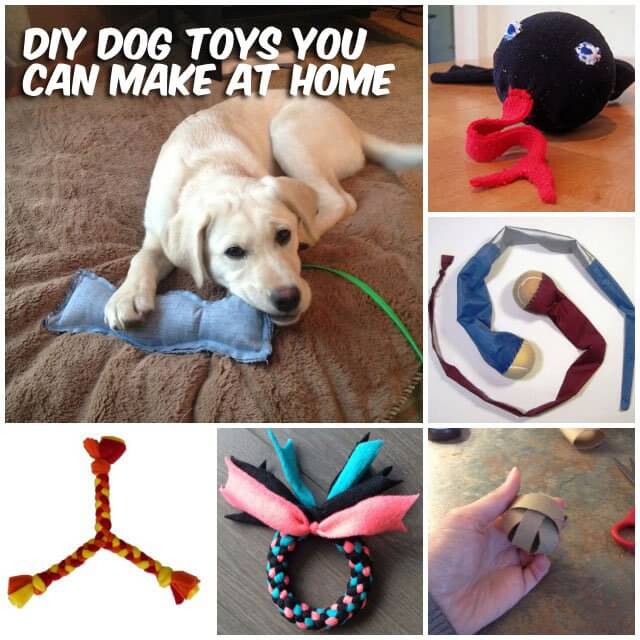
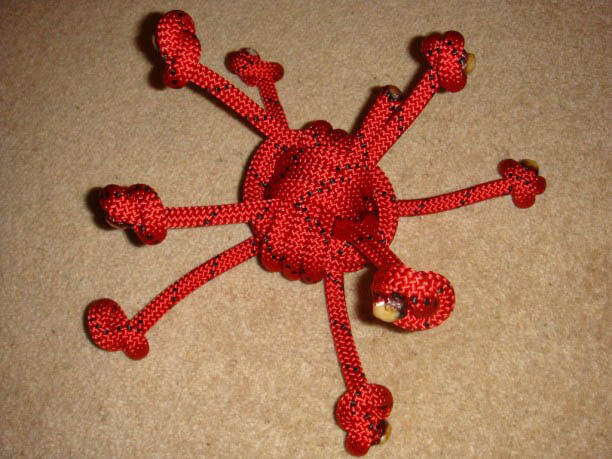
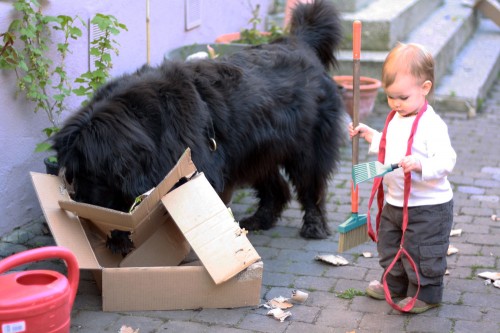
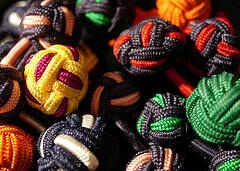
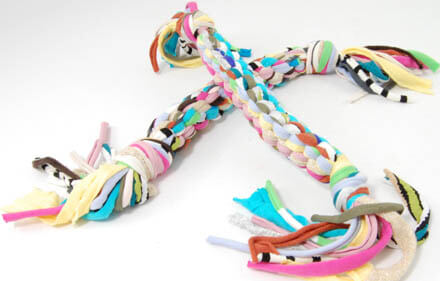
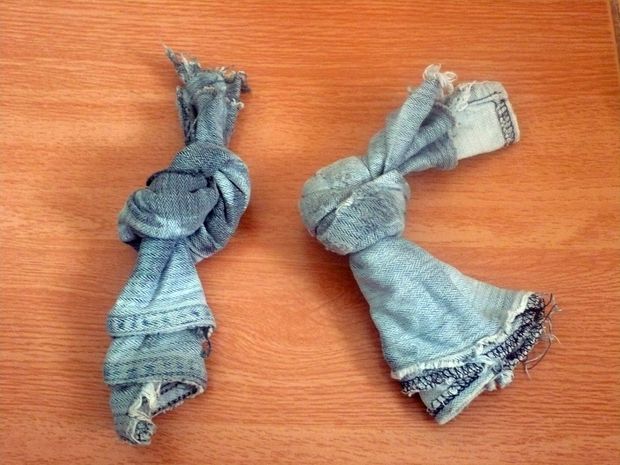
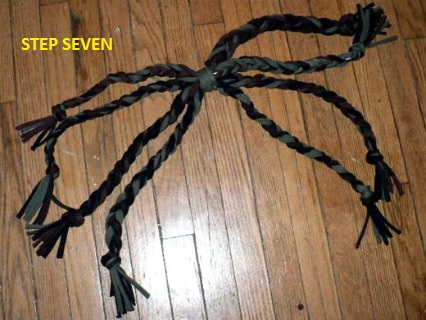
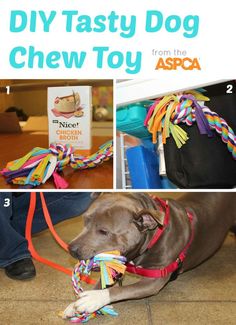
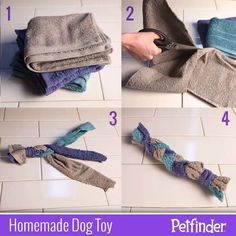
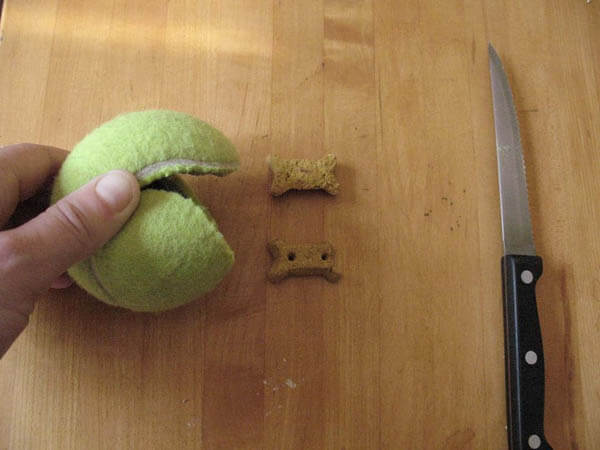
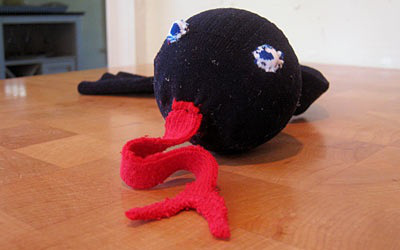
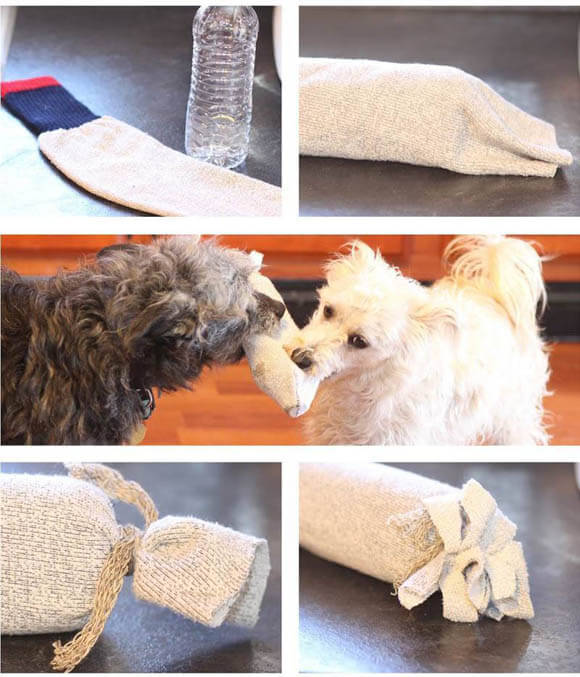
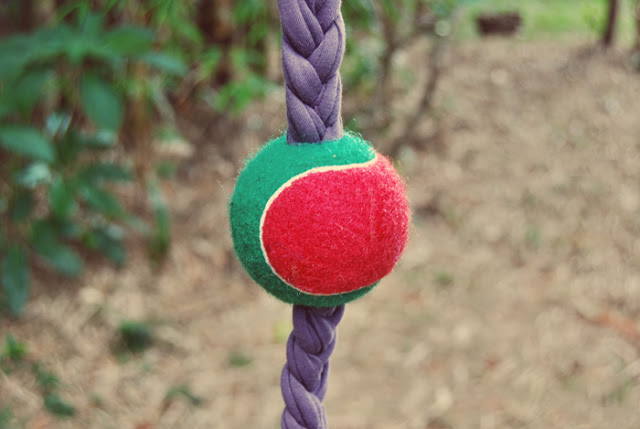
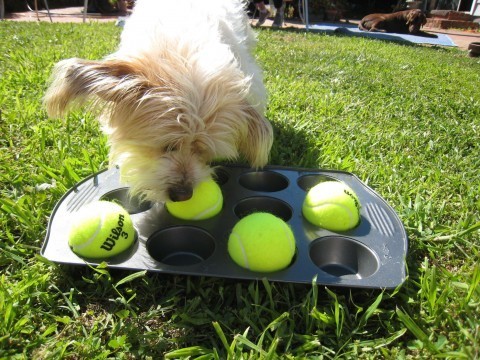

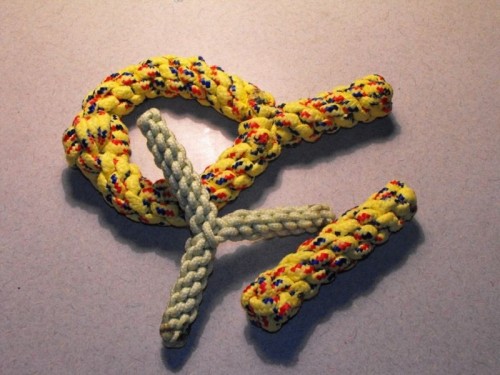
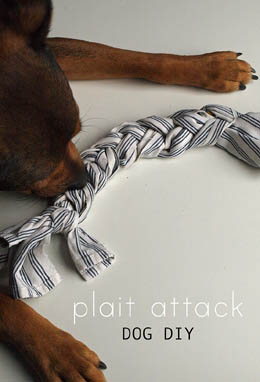
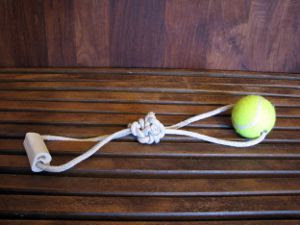
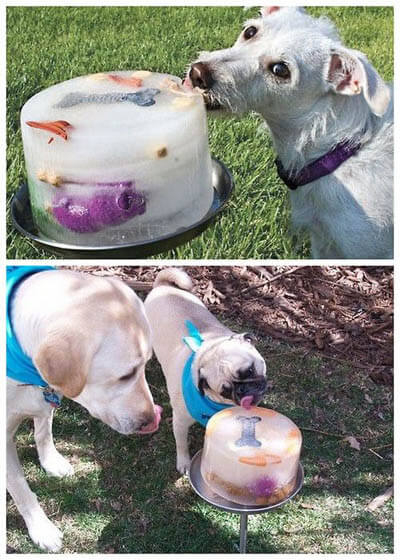
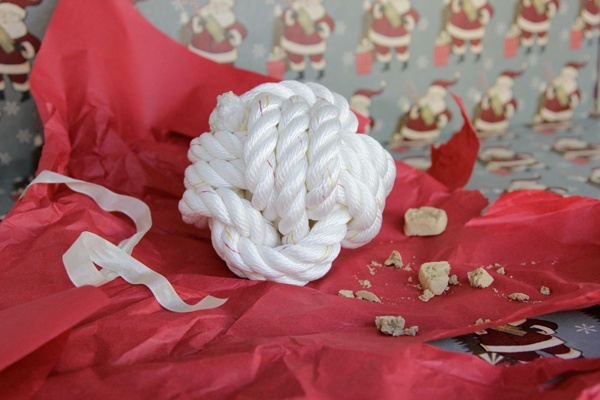
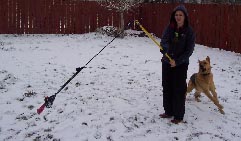
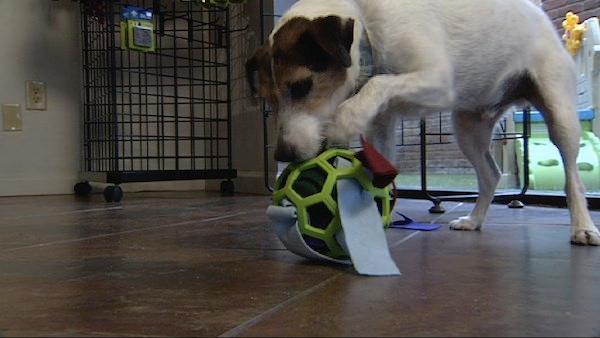
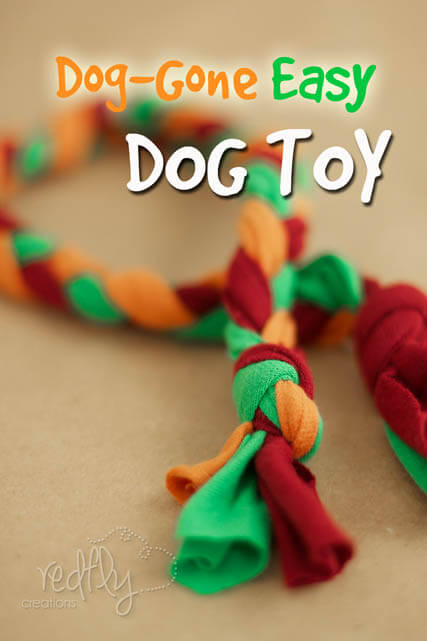
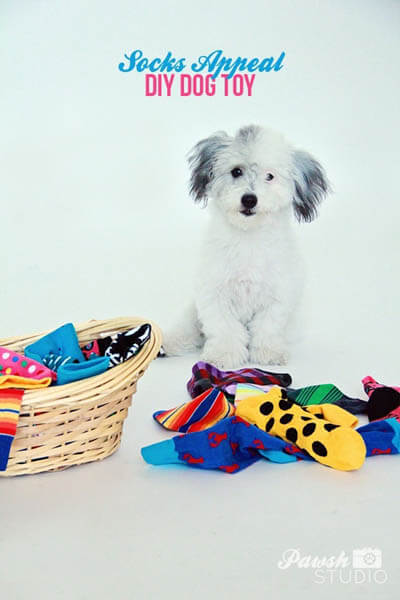
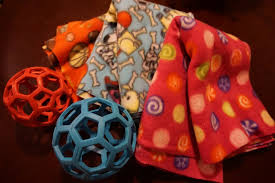
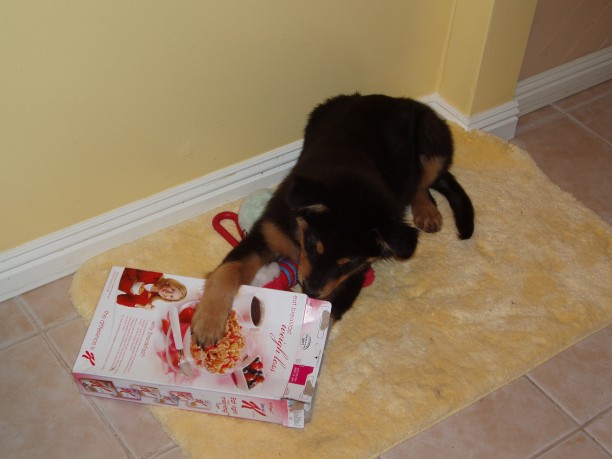
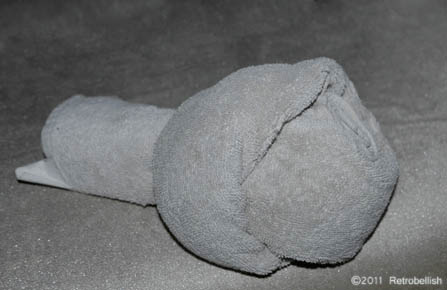
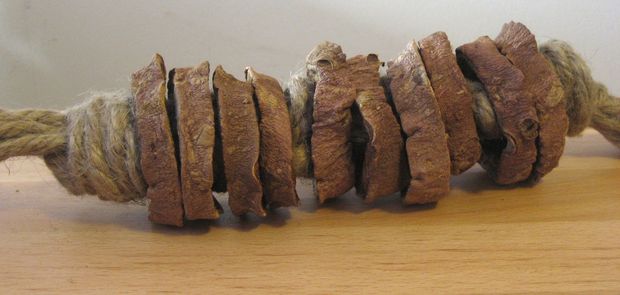
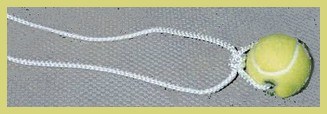
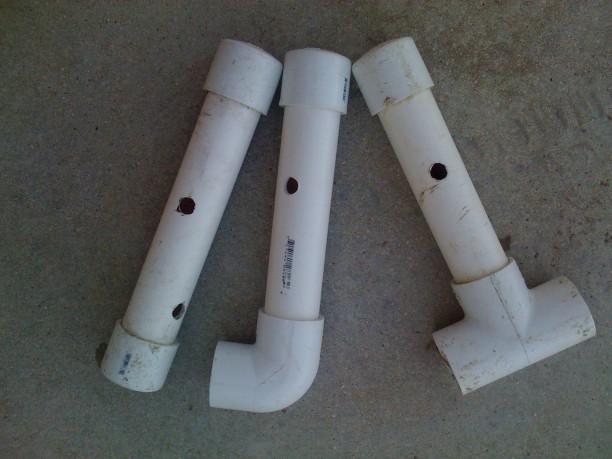
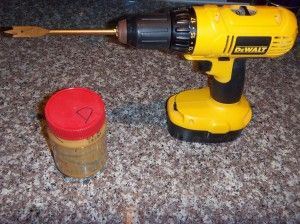
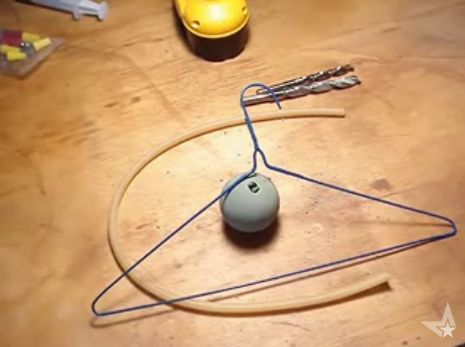
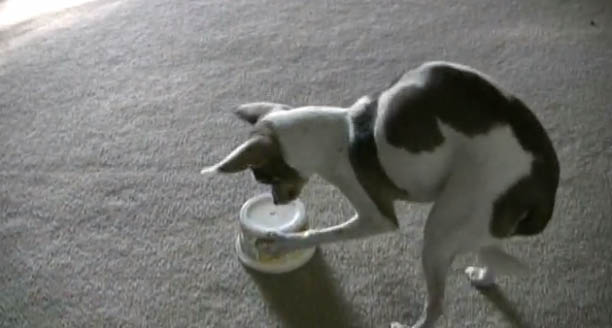
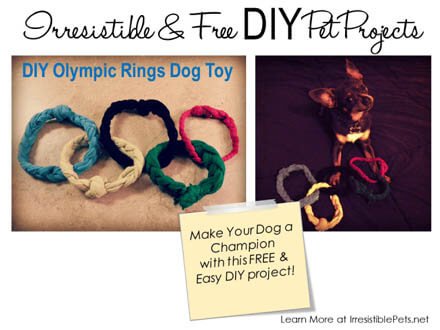
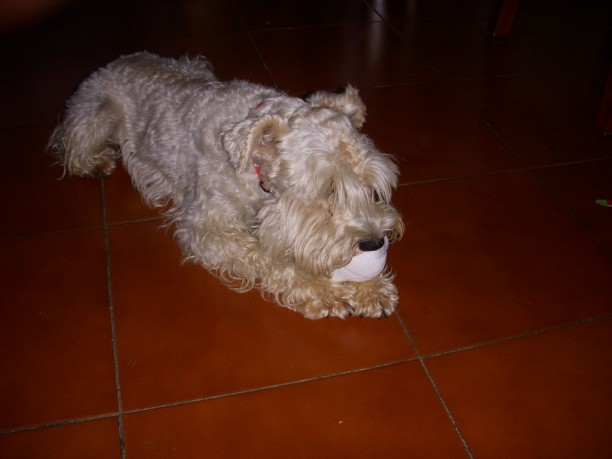
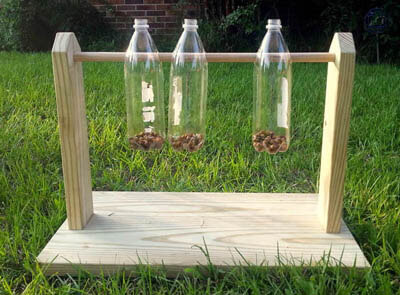
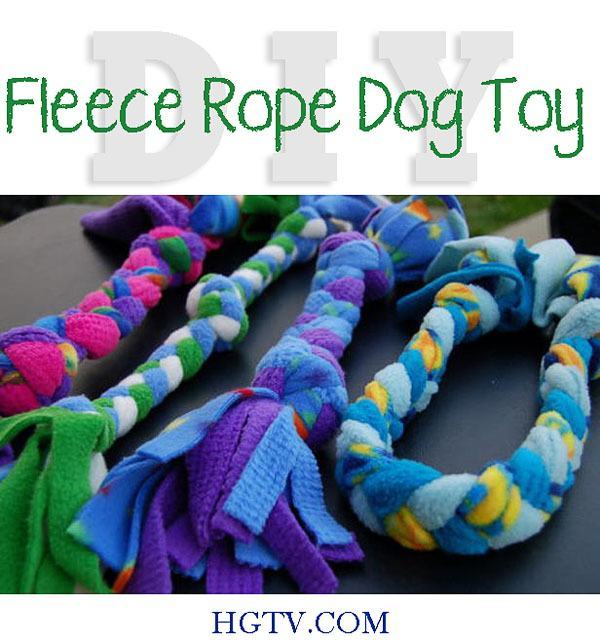
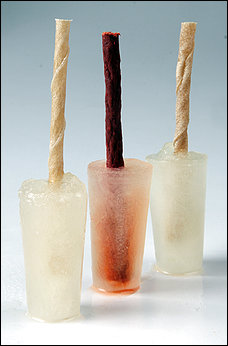
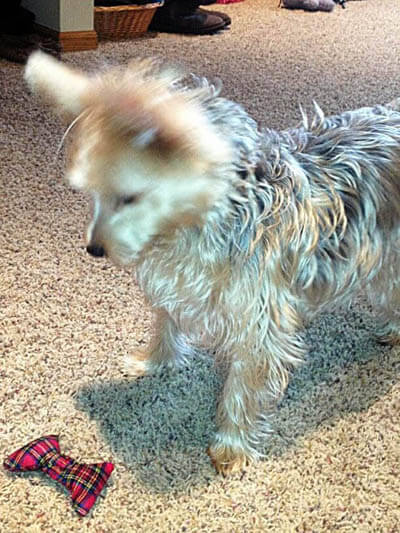

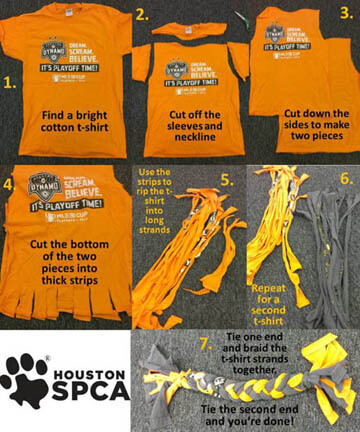
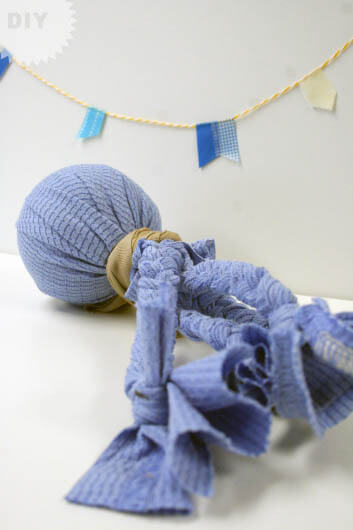
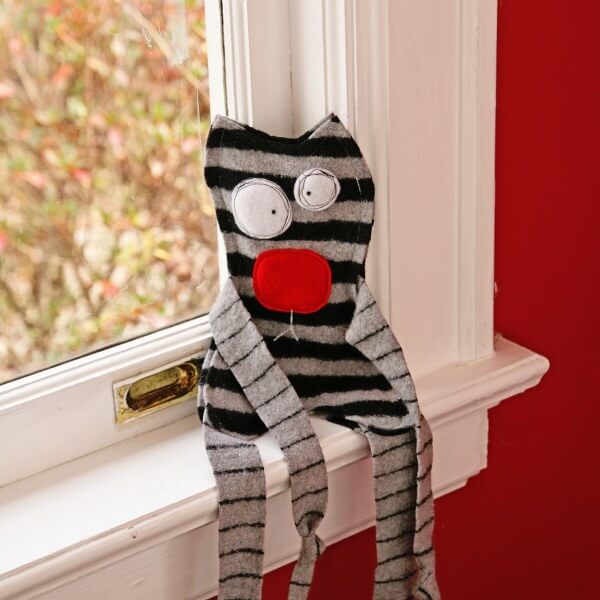
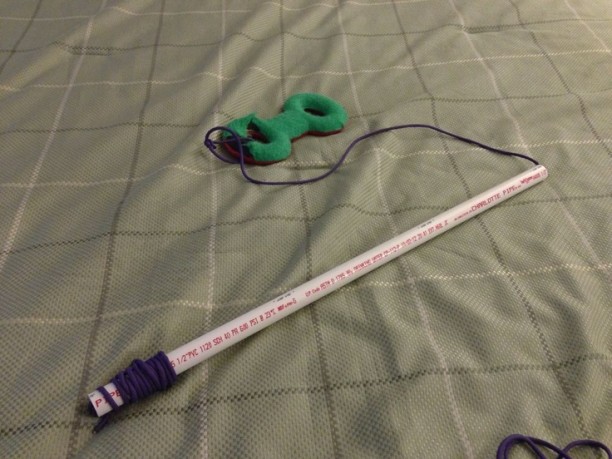
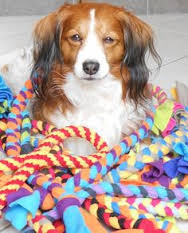
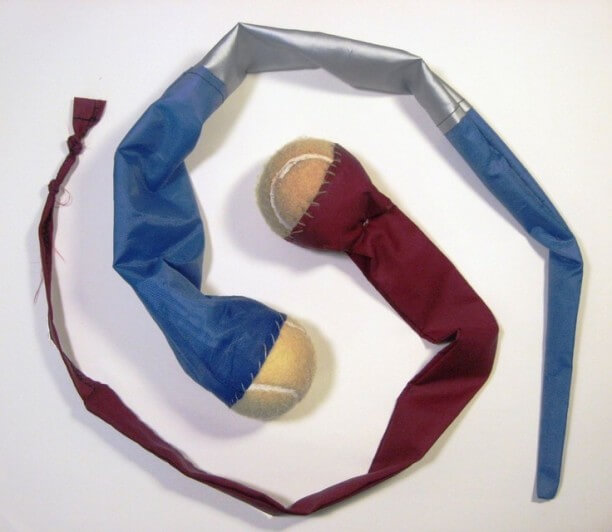
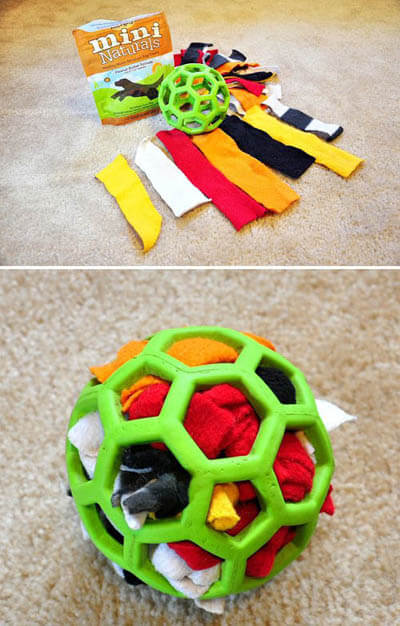

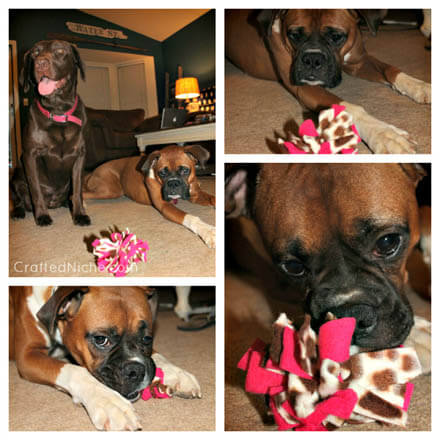
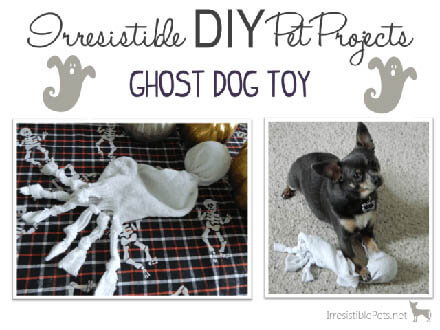
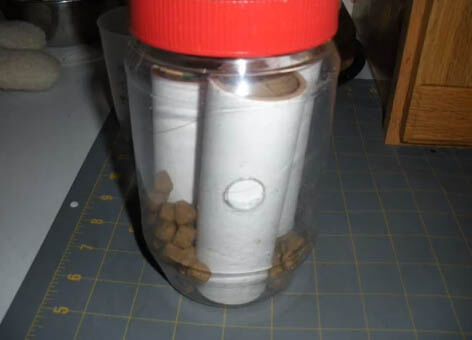
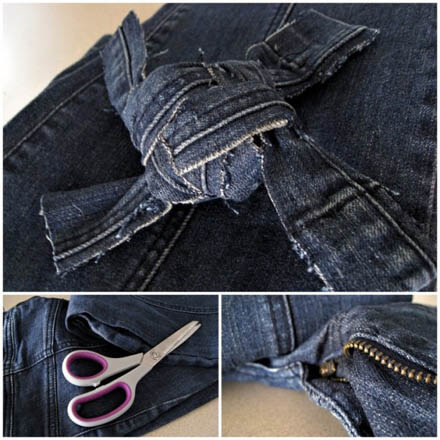
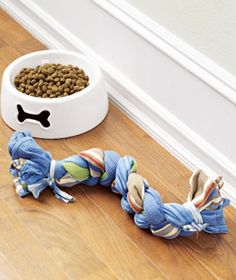
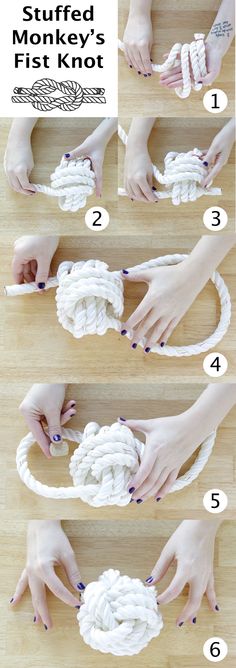

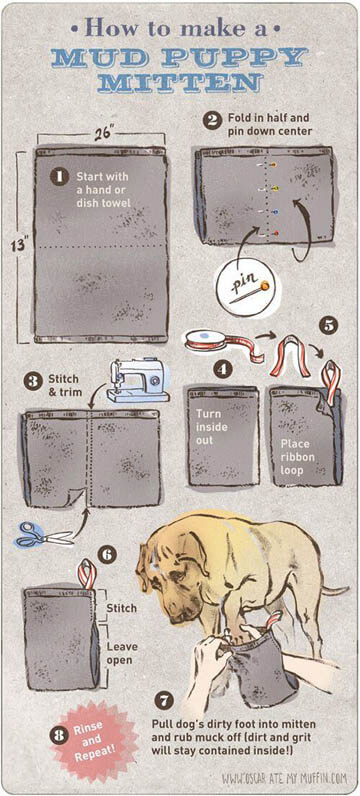
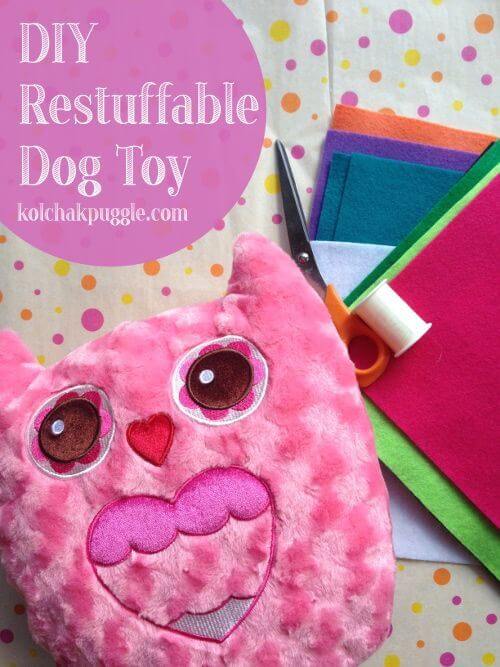
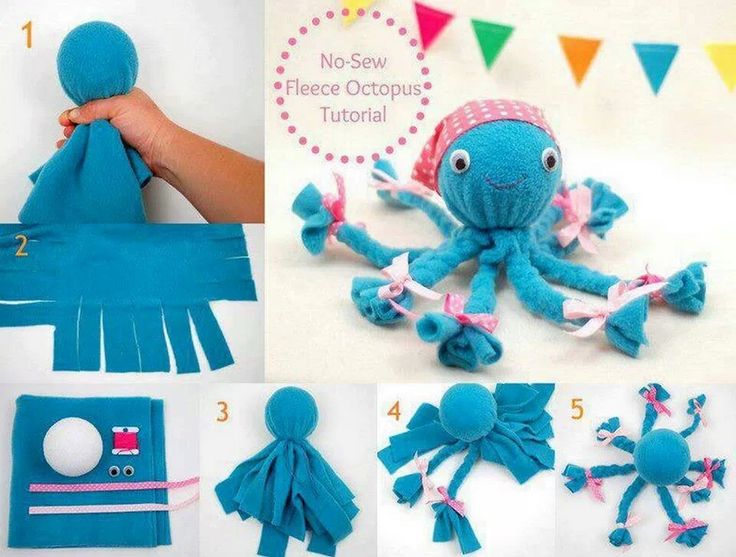
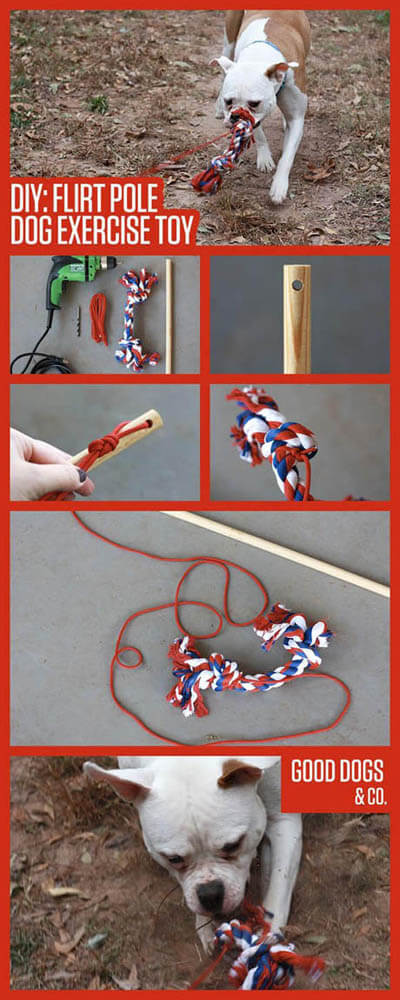
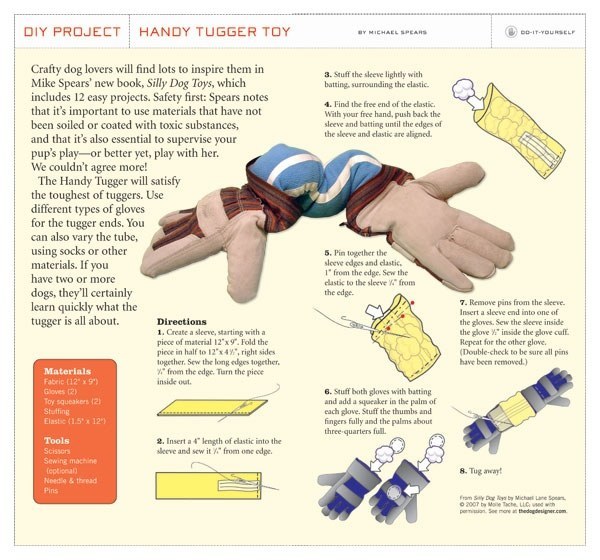
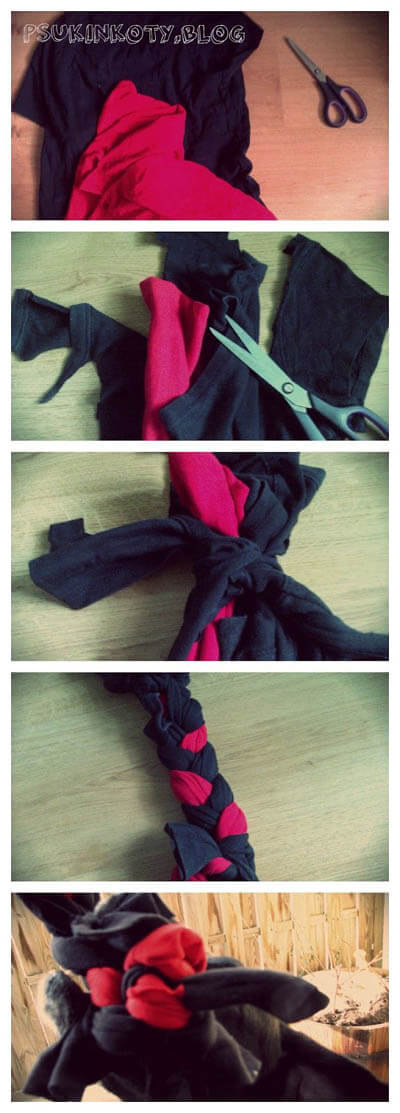
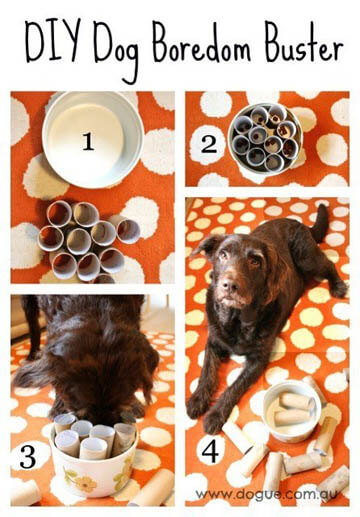
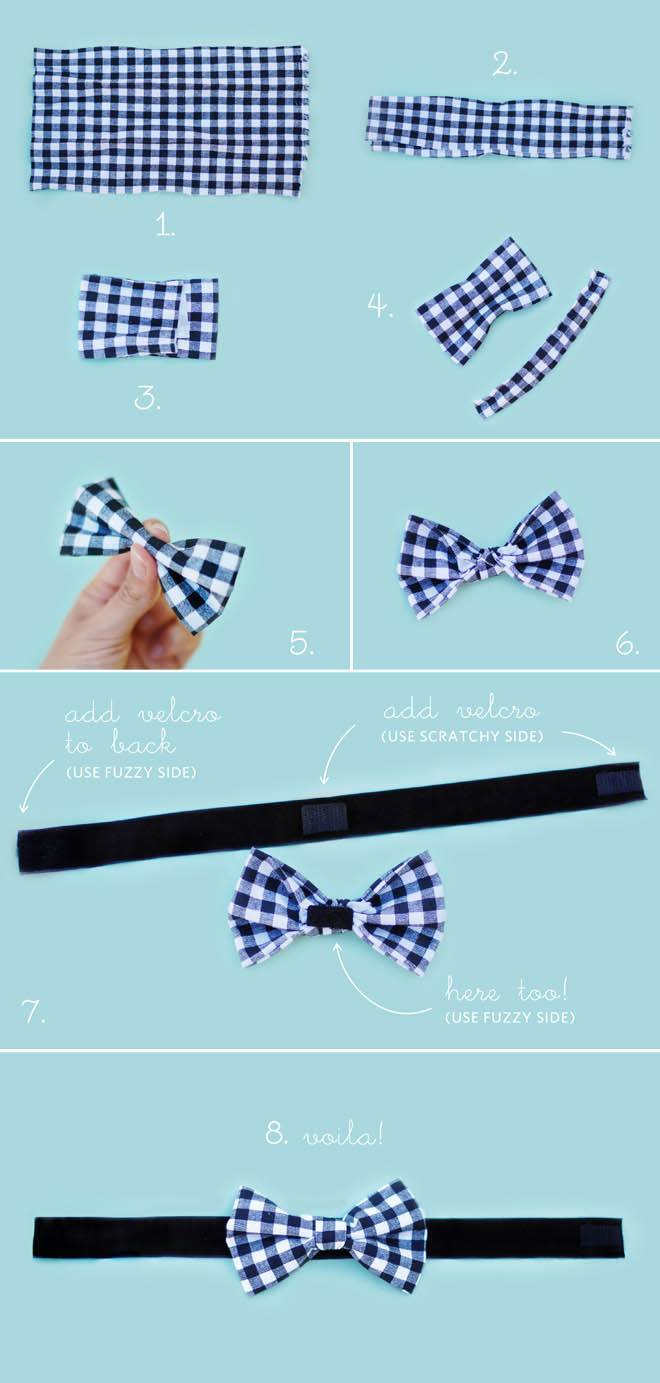
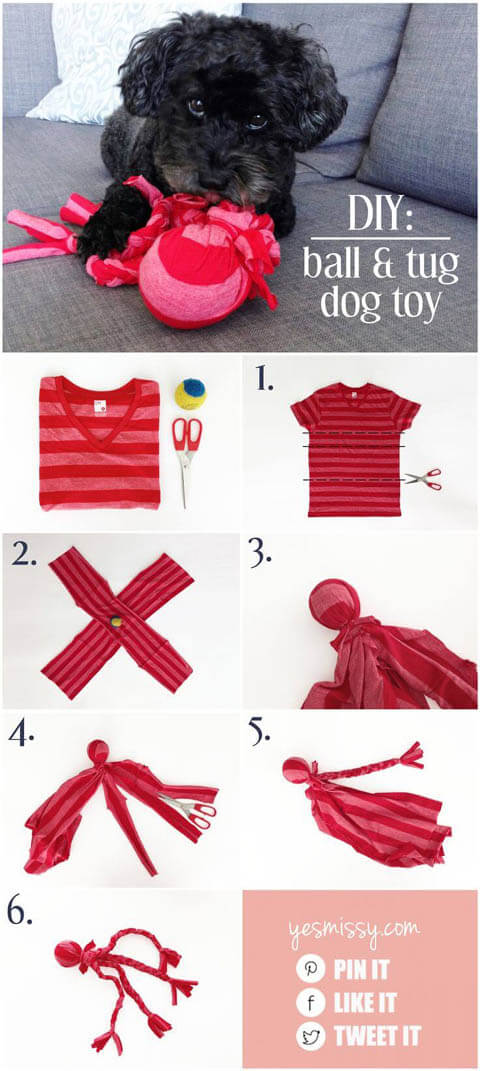
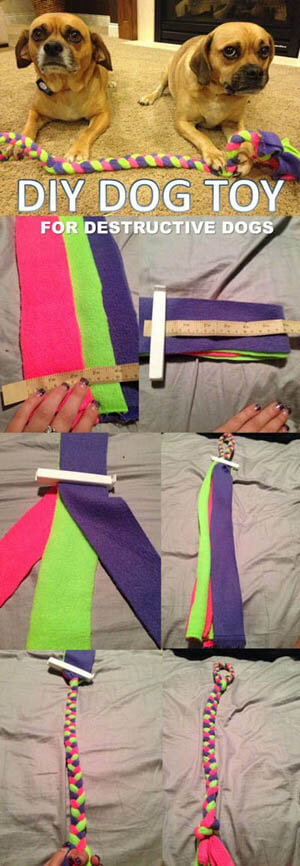
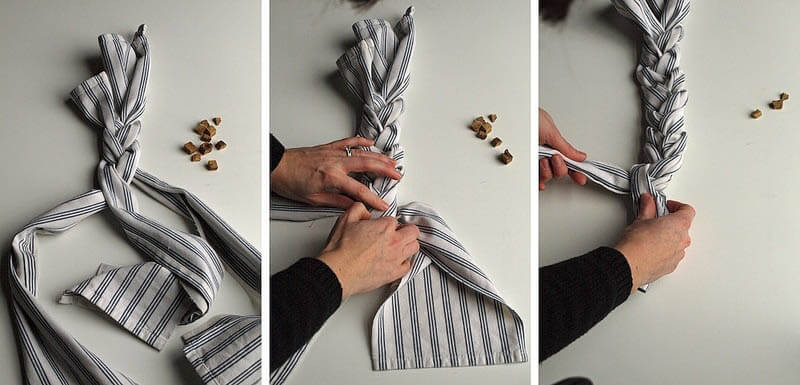
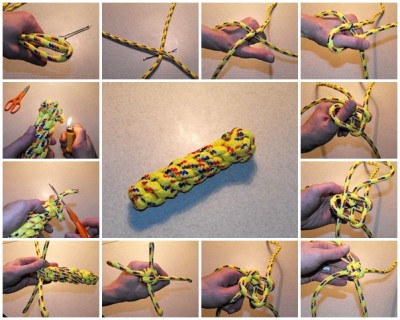
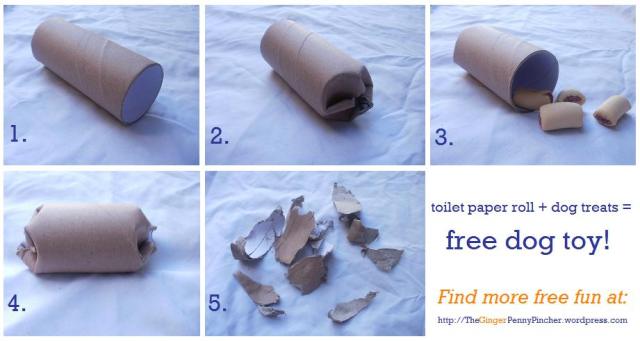
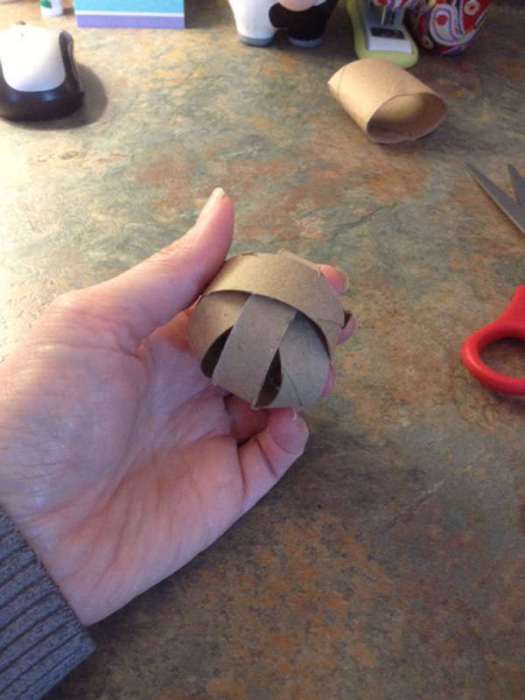
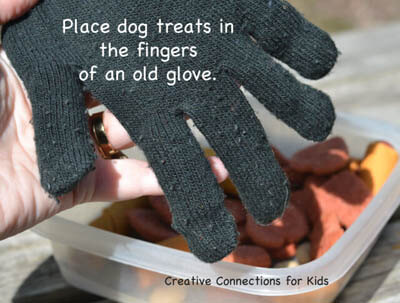
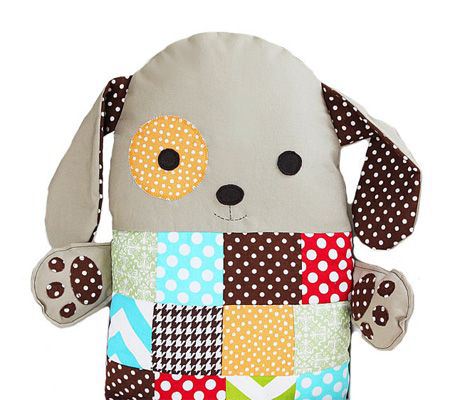
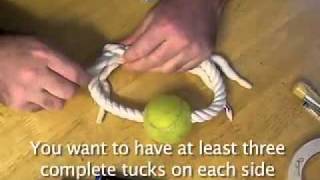
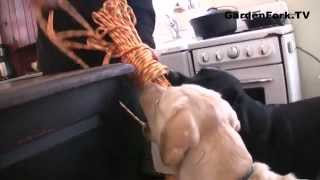
Take a plastic jar and swirl a little bacon grease at the bottom and let it harden. Then give it to your pup to lick the bacon goodness for hours. Or just give them an empty peanut butter bottle!